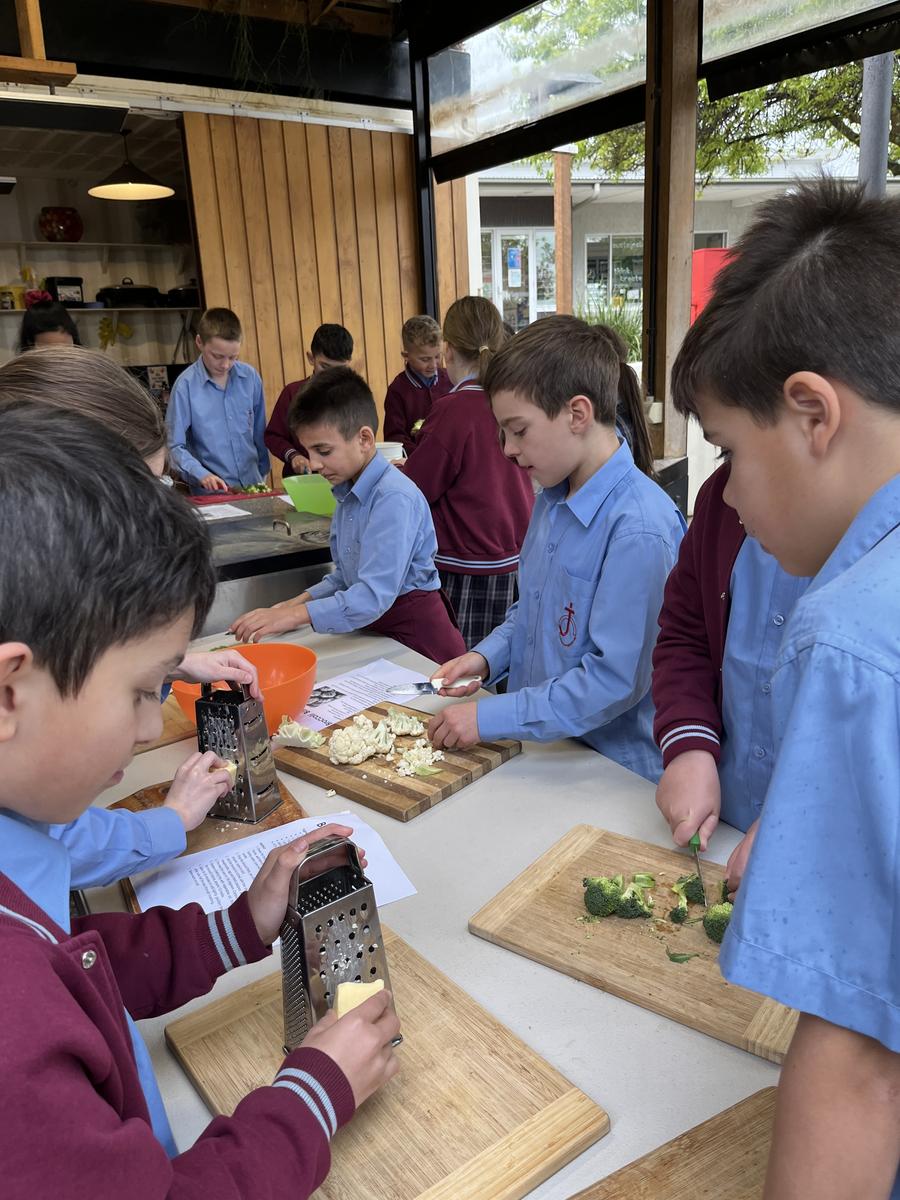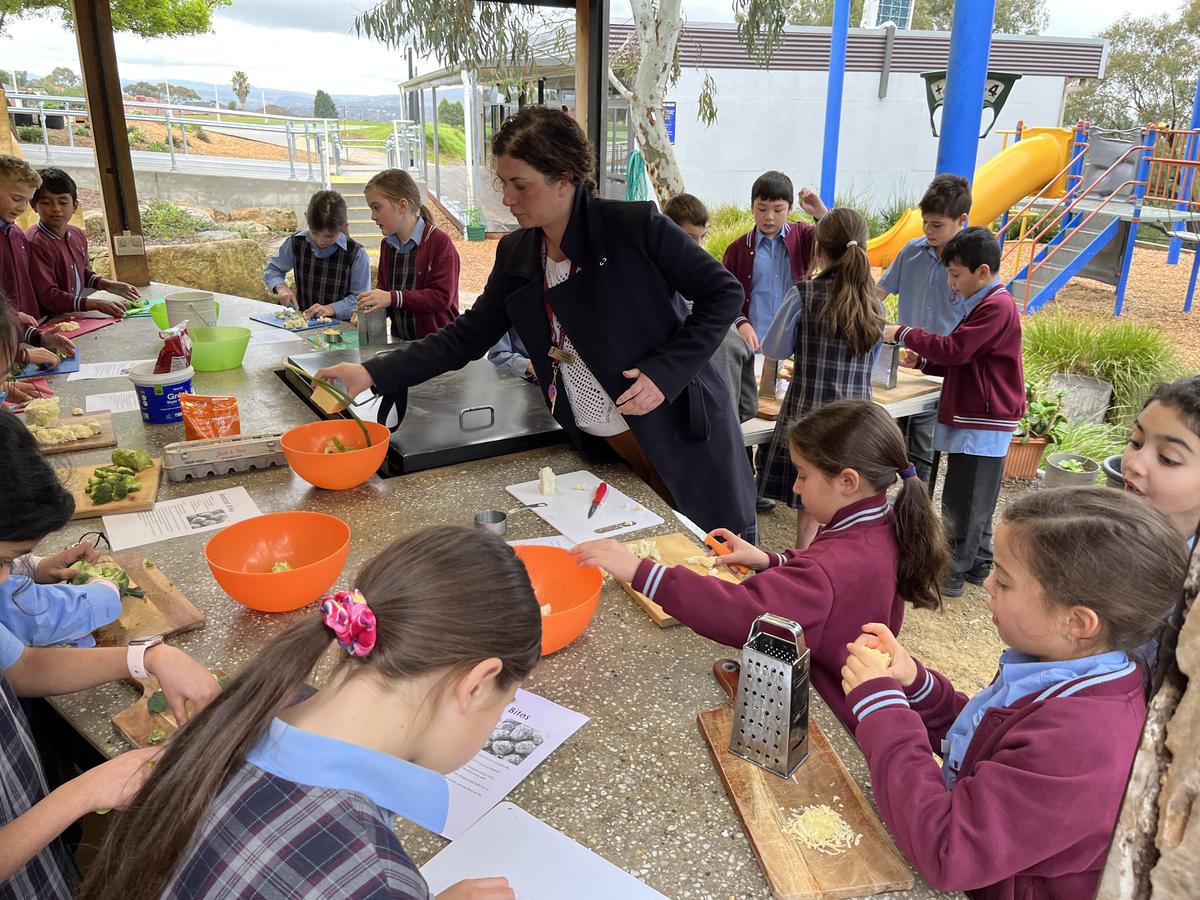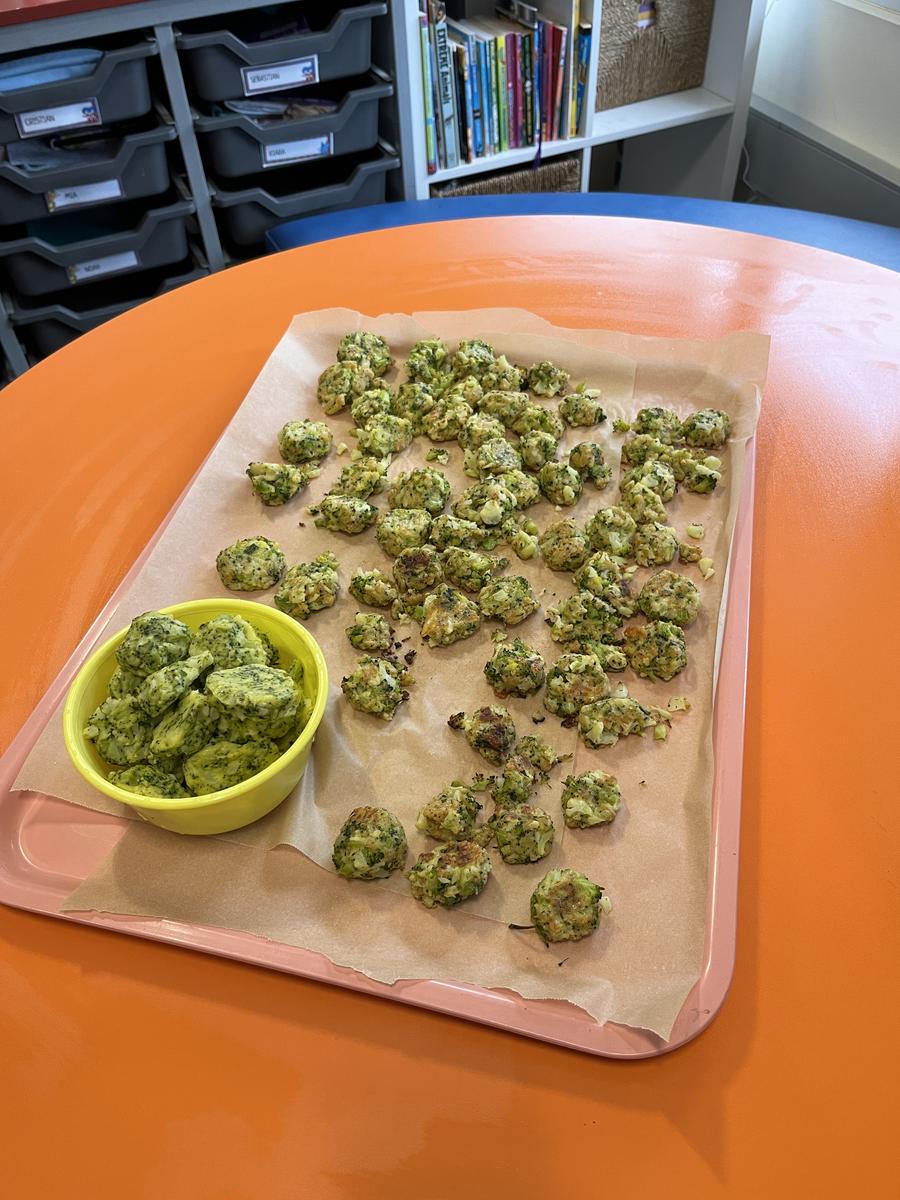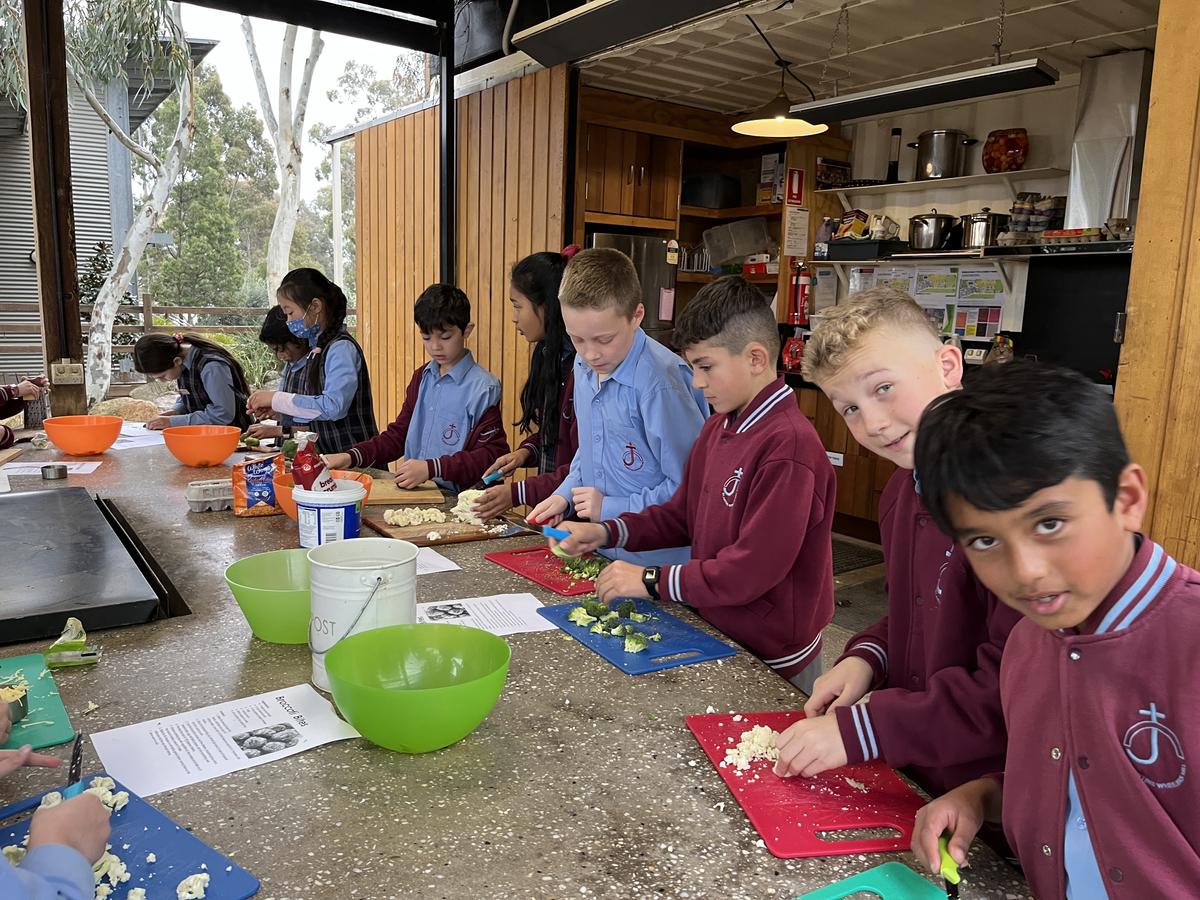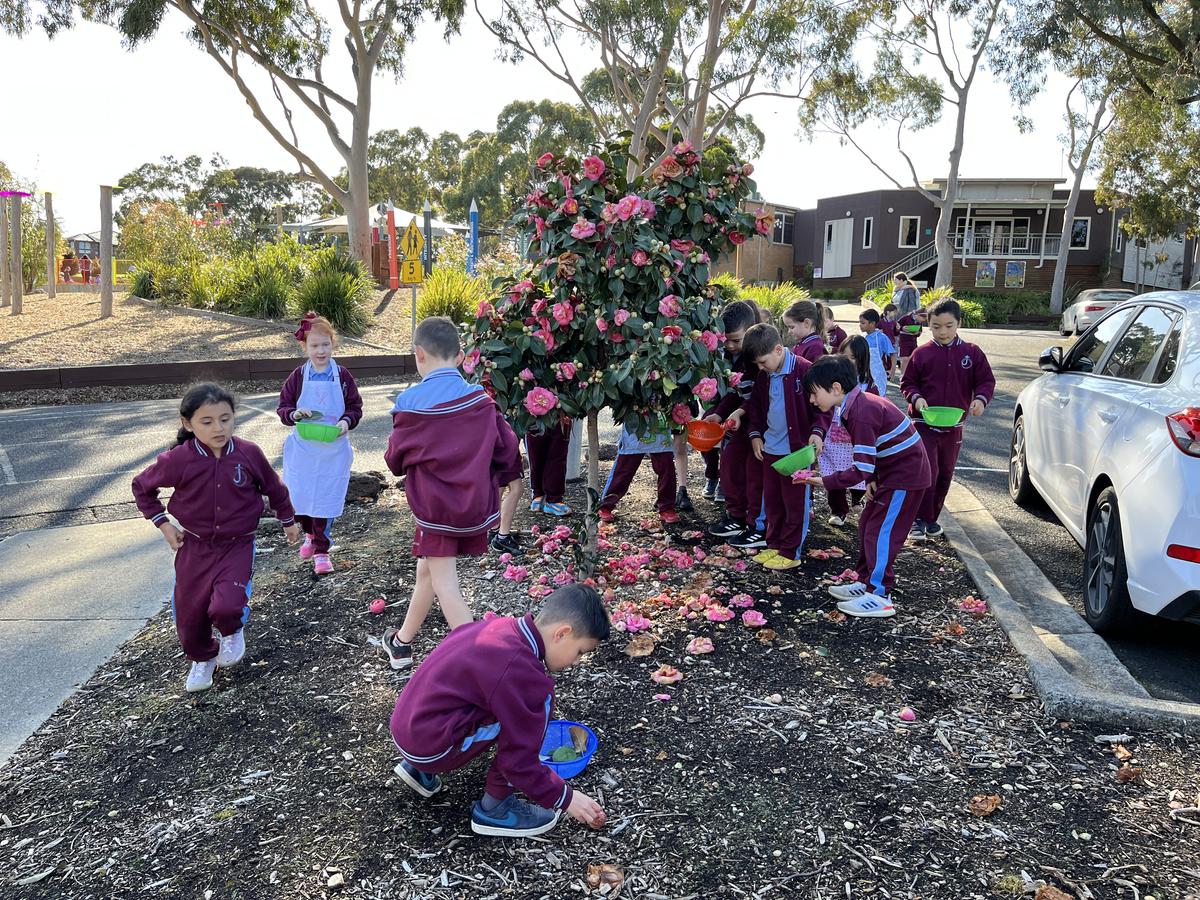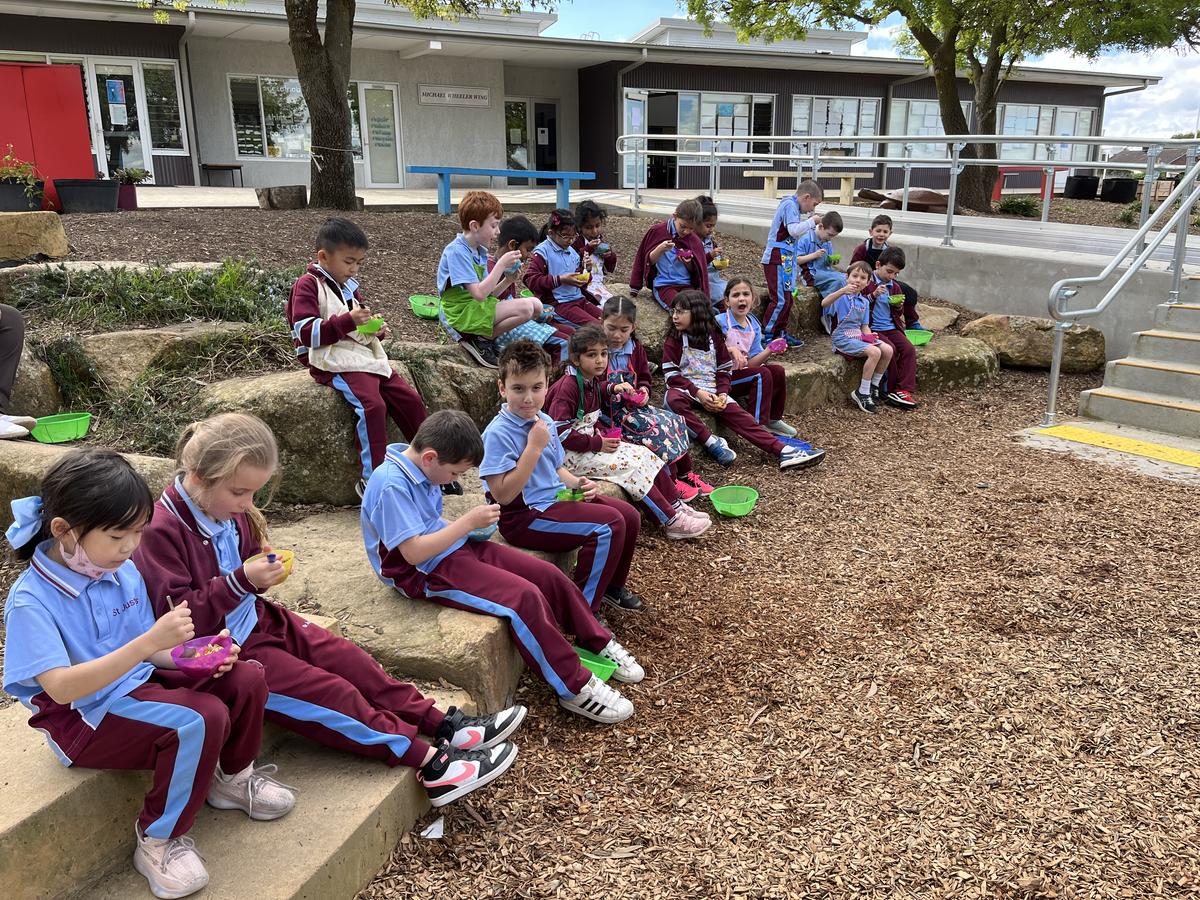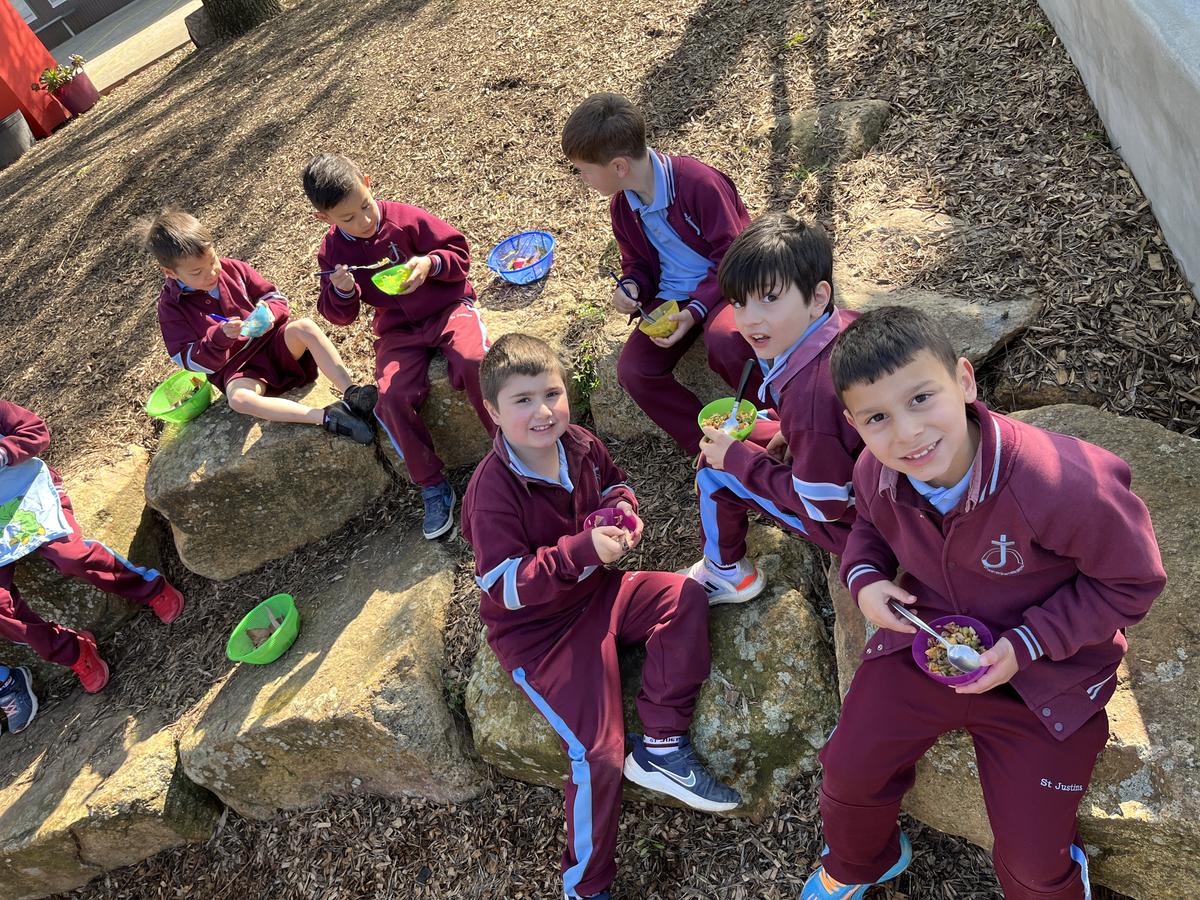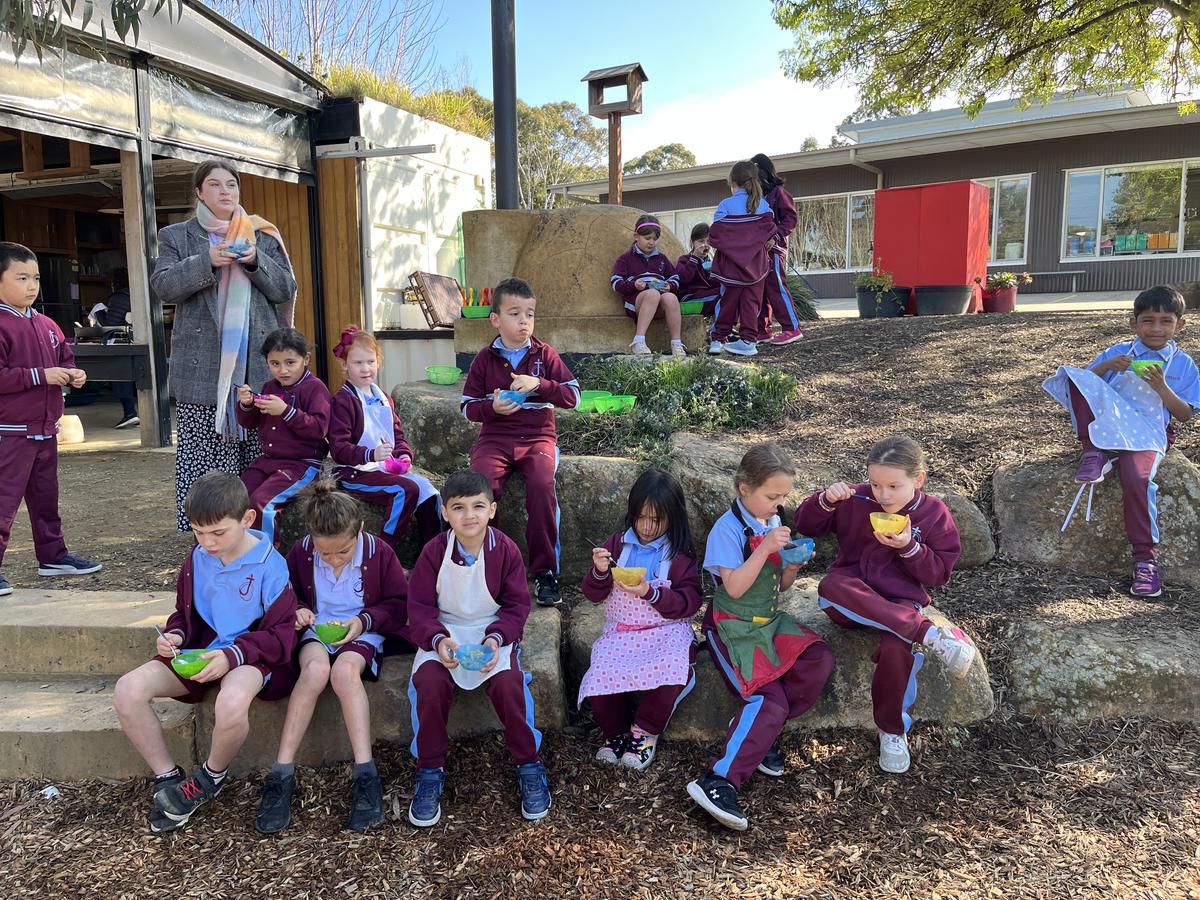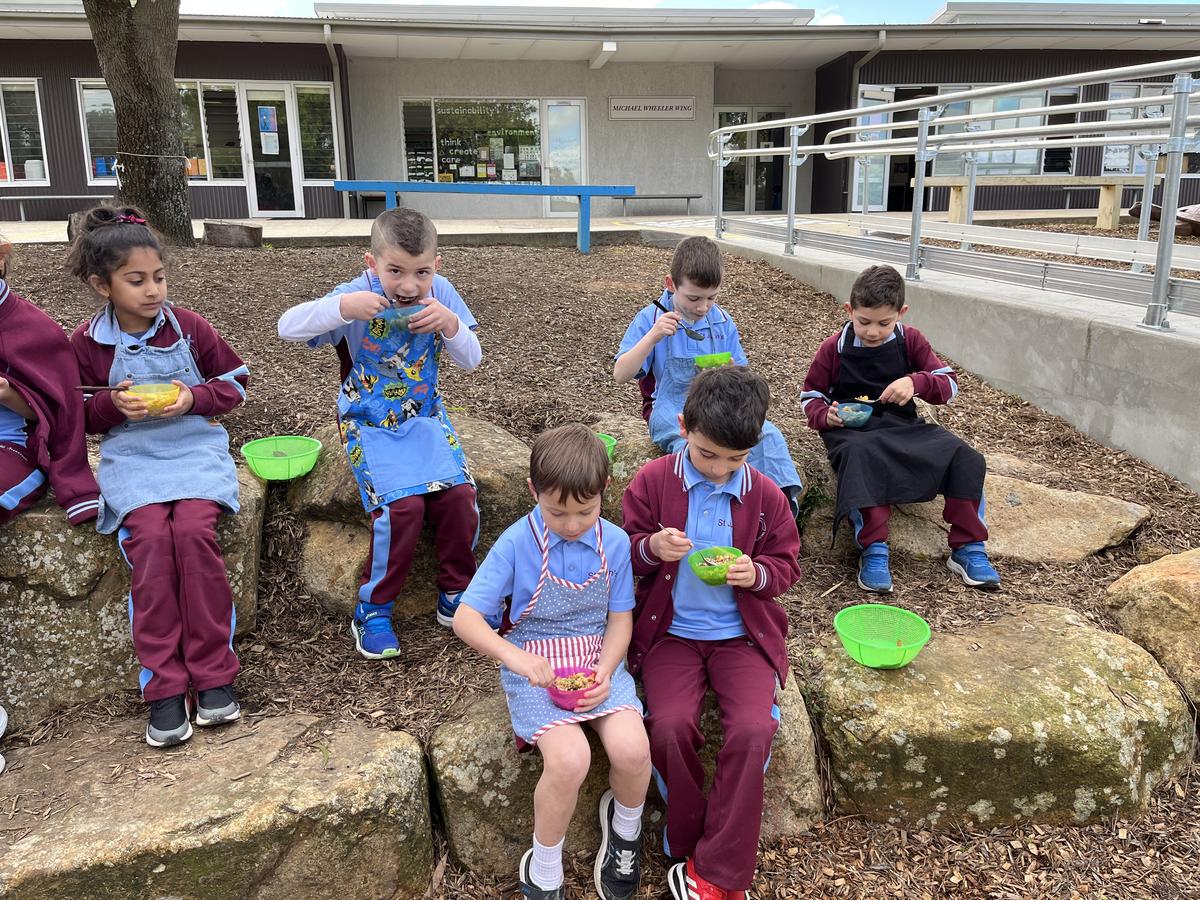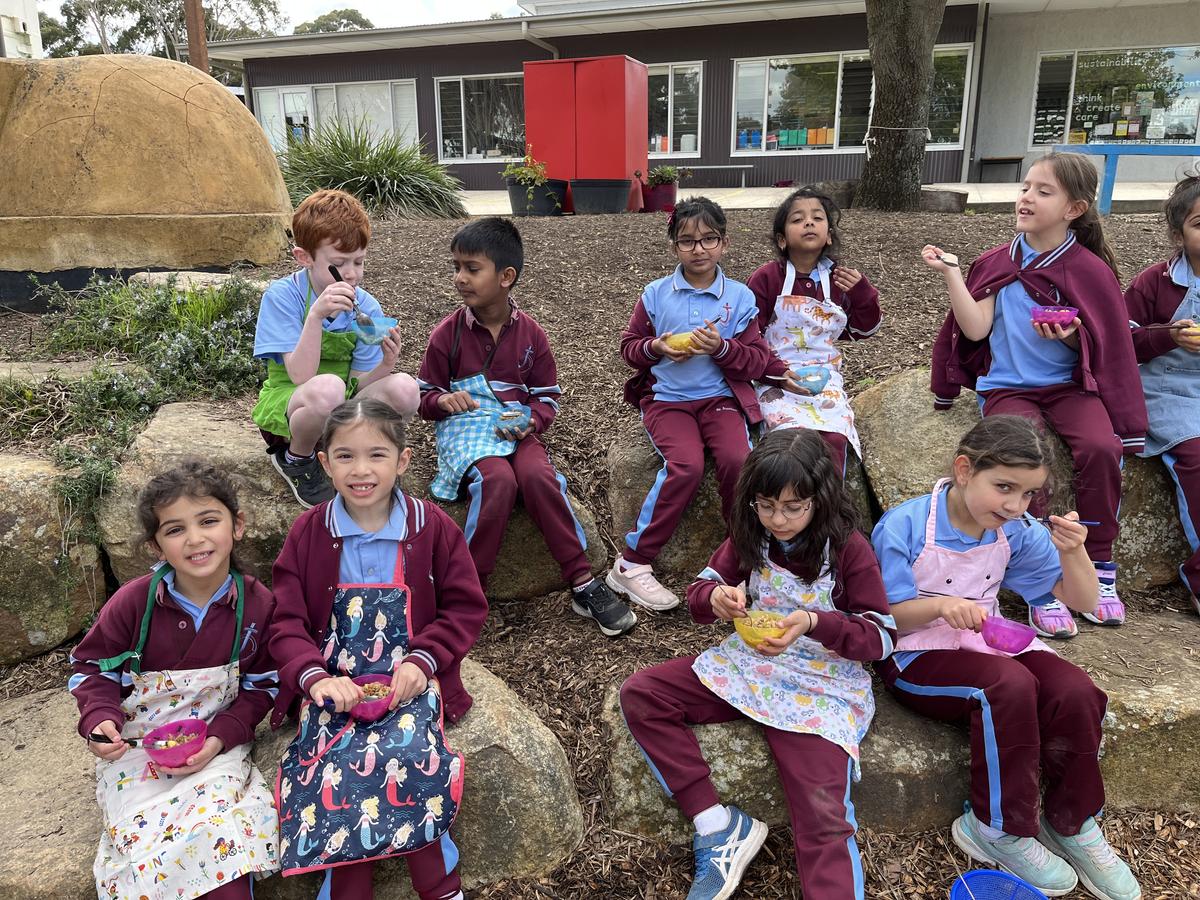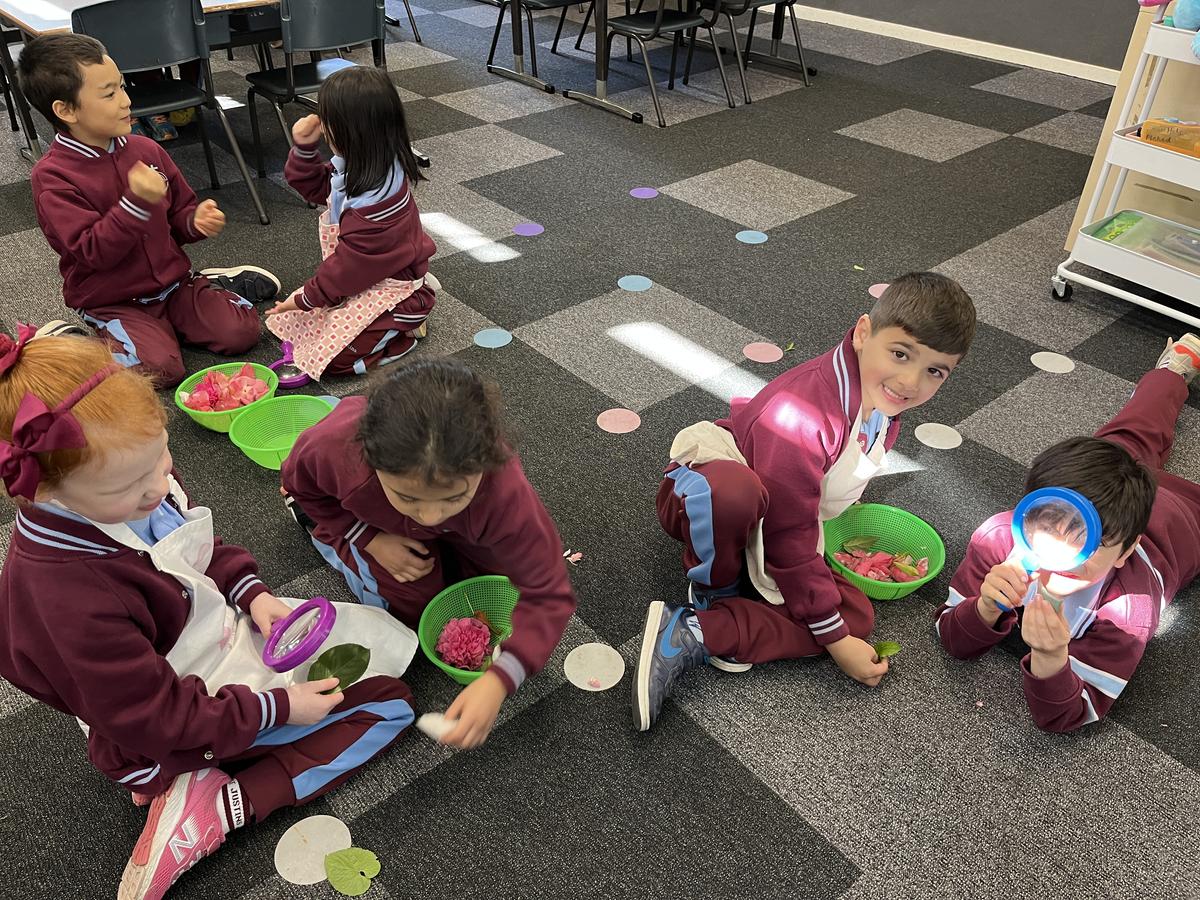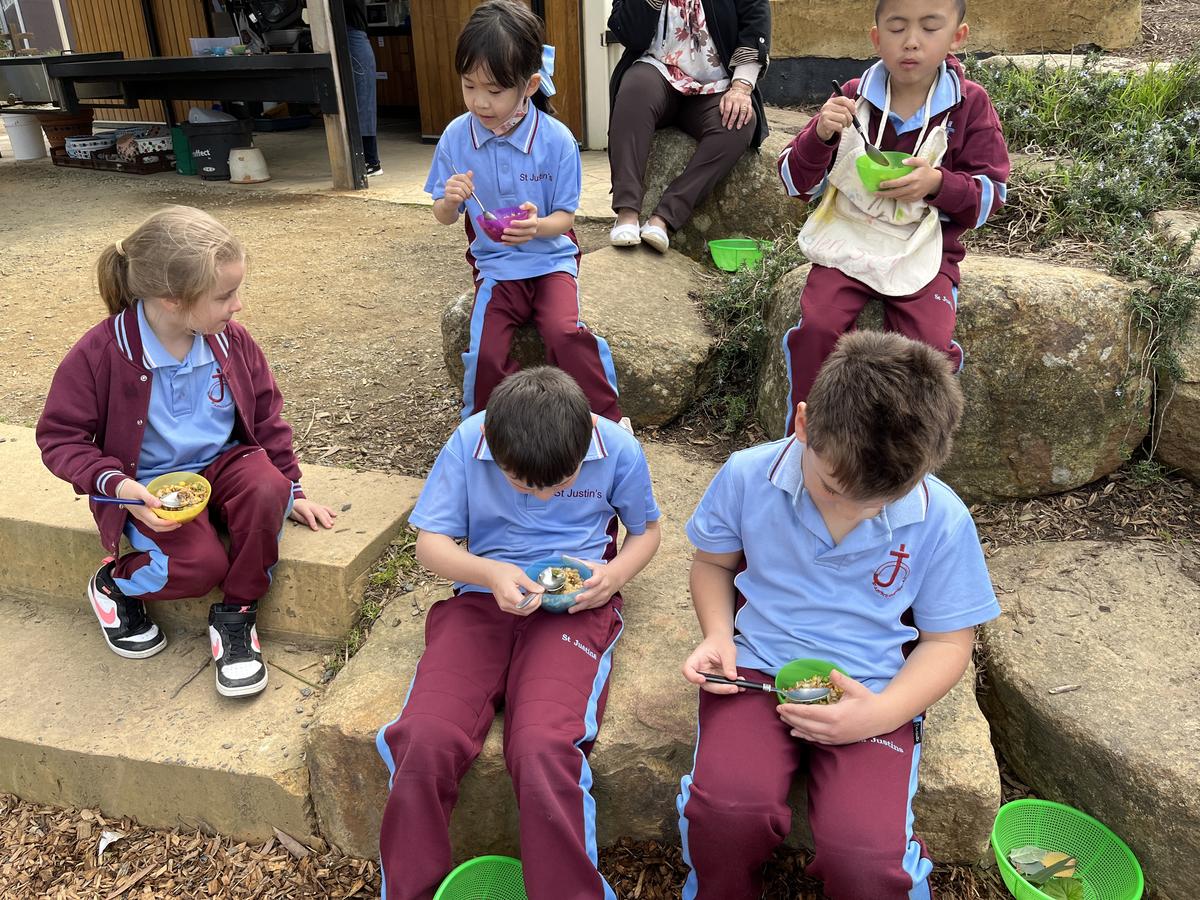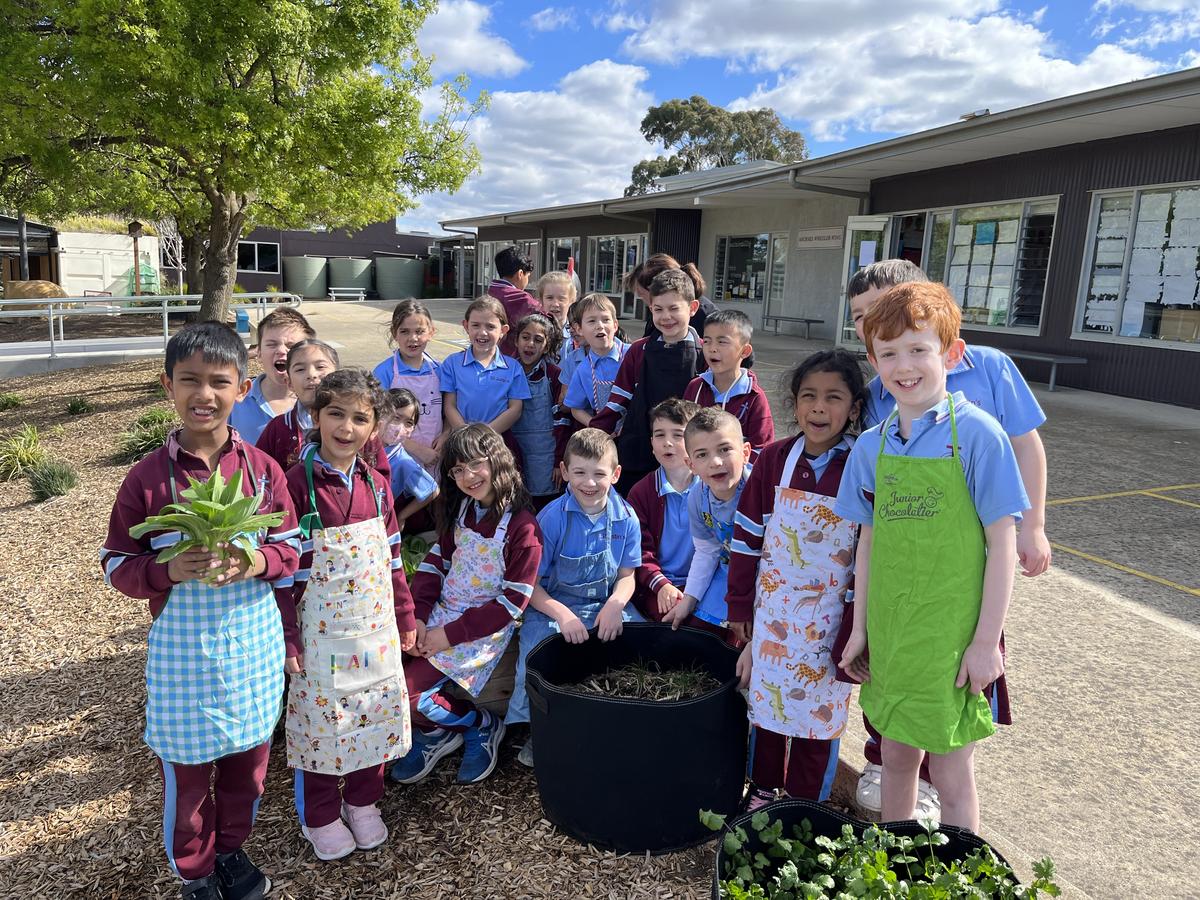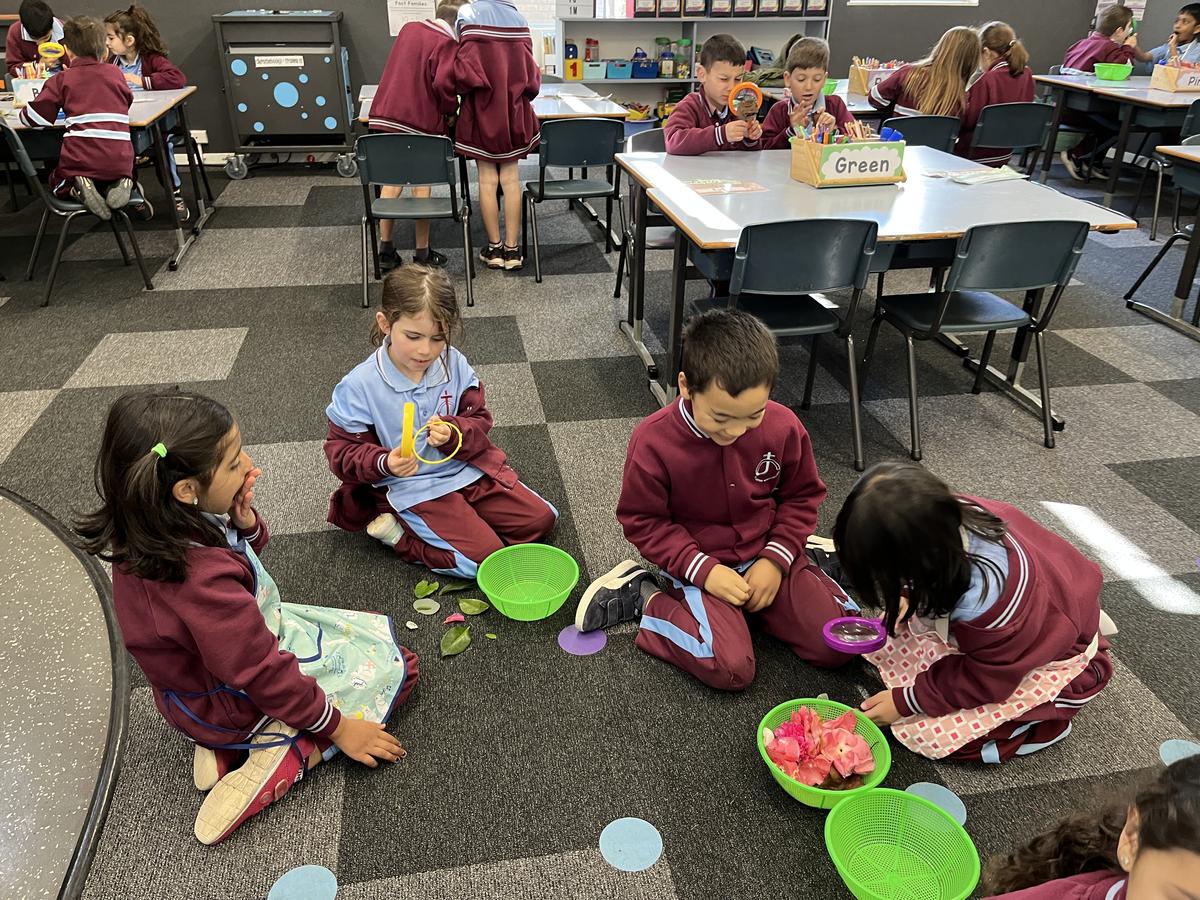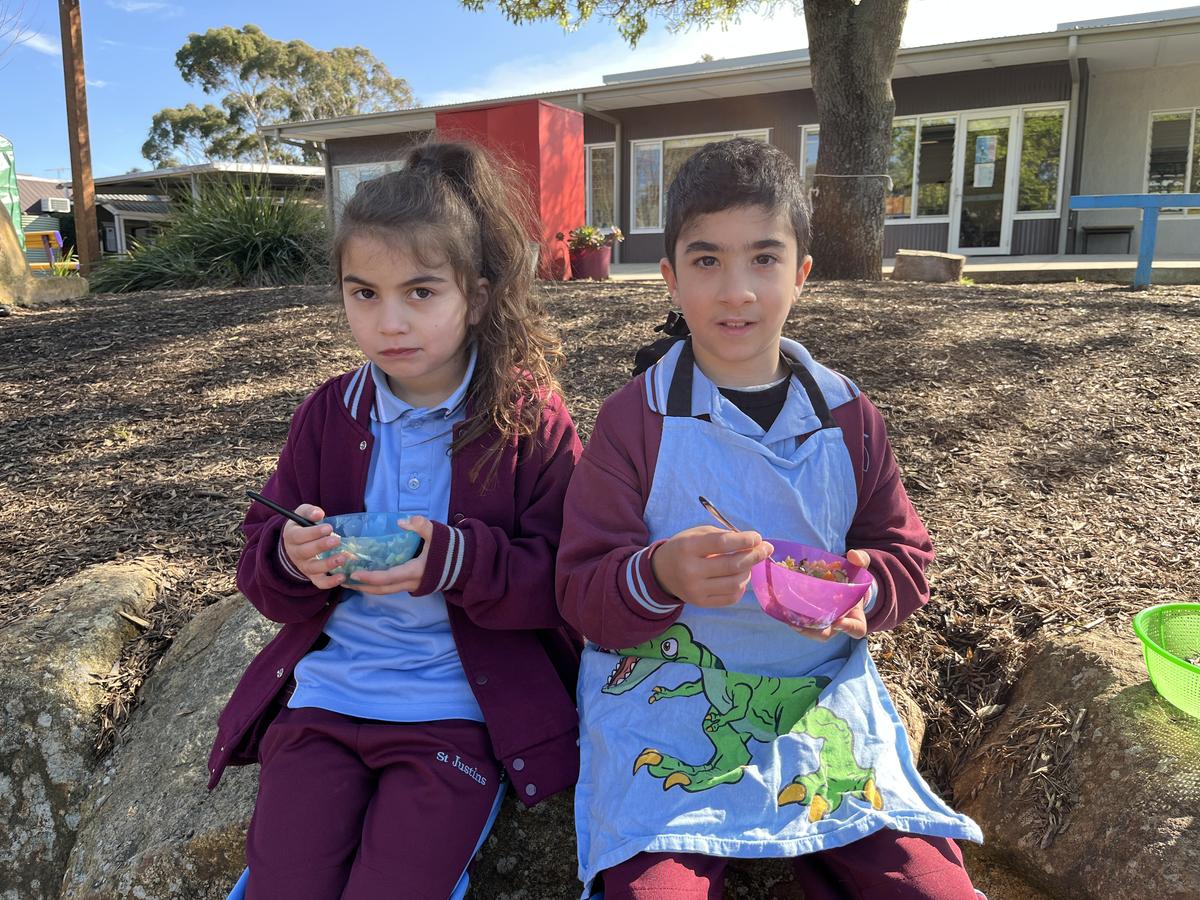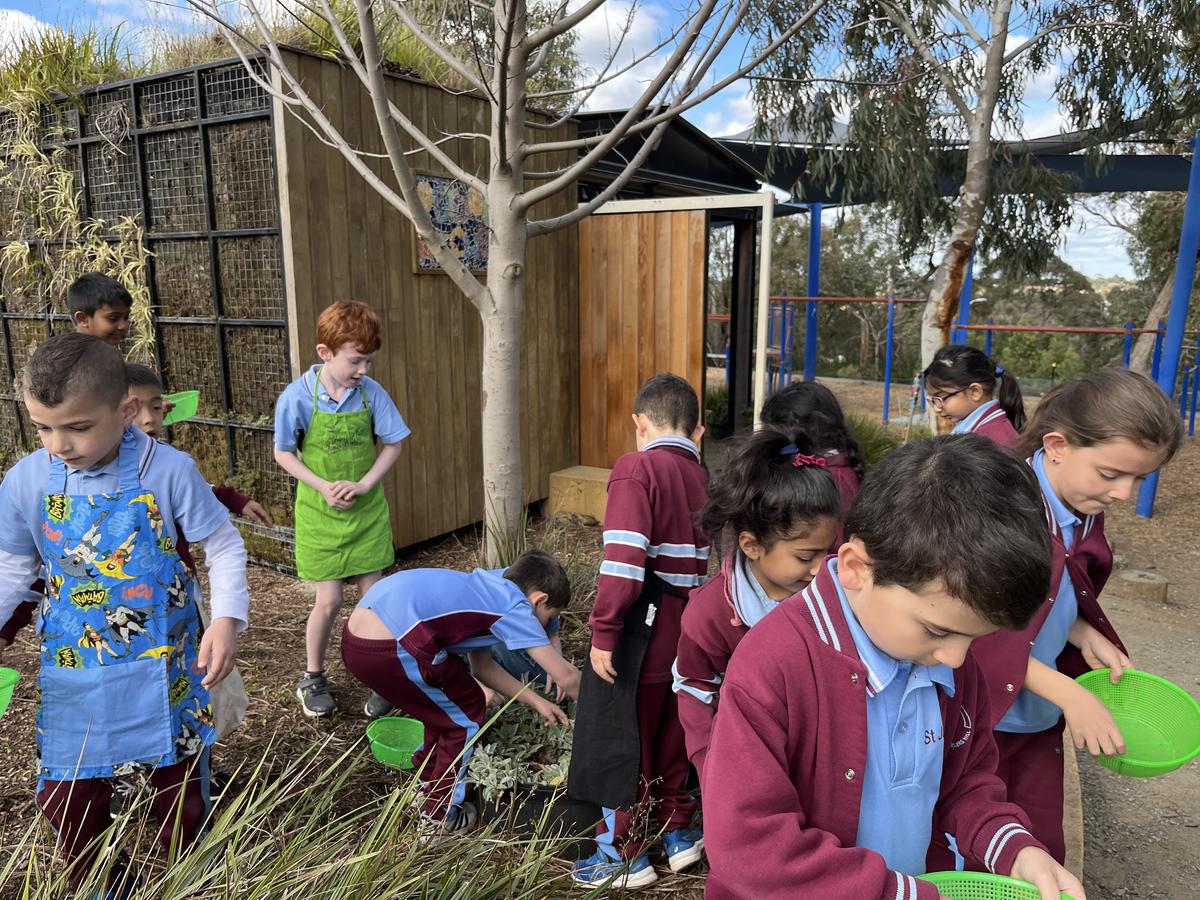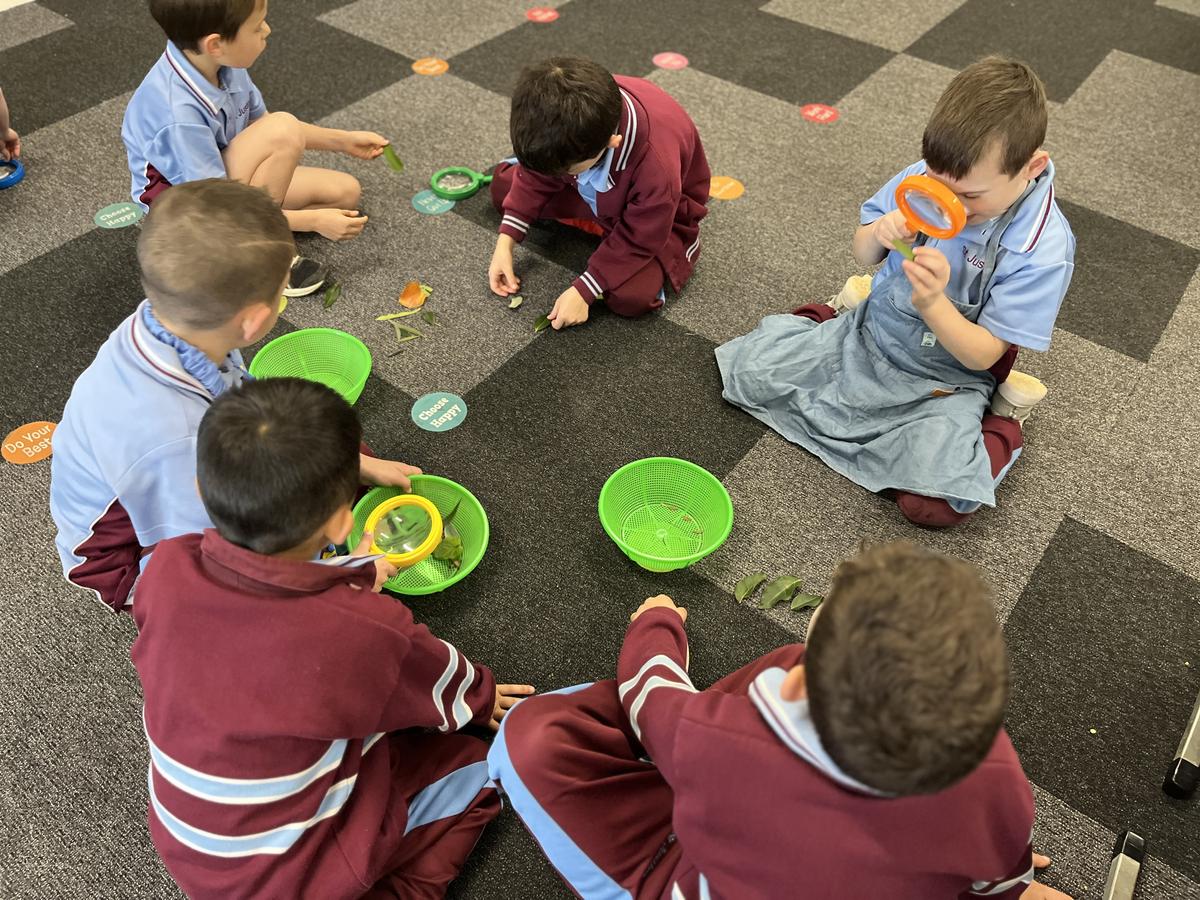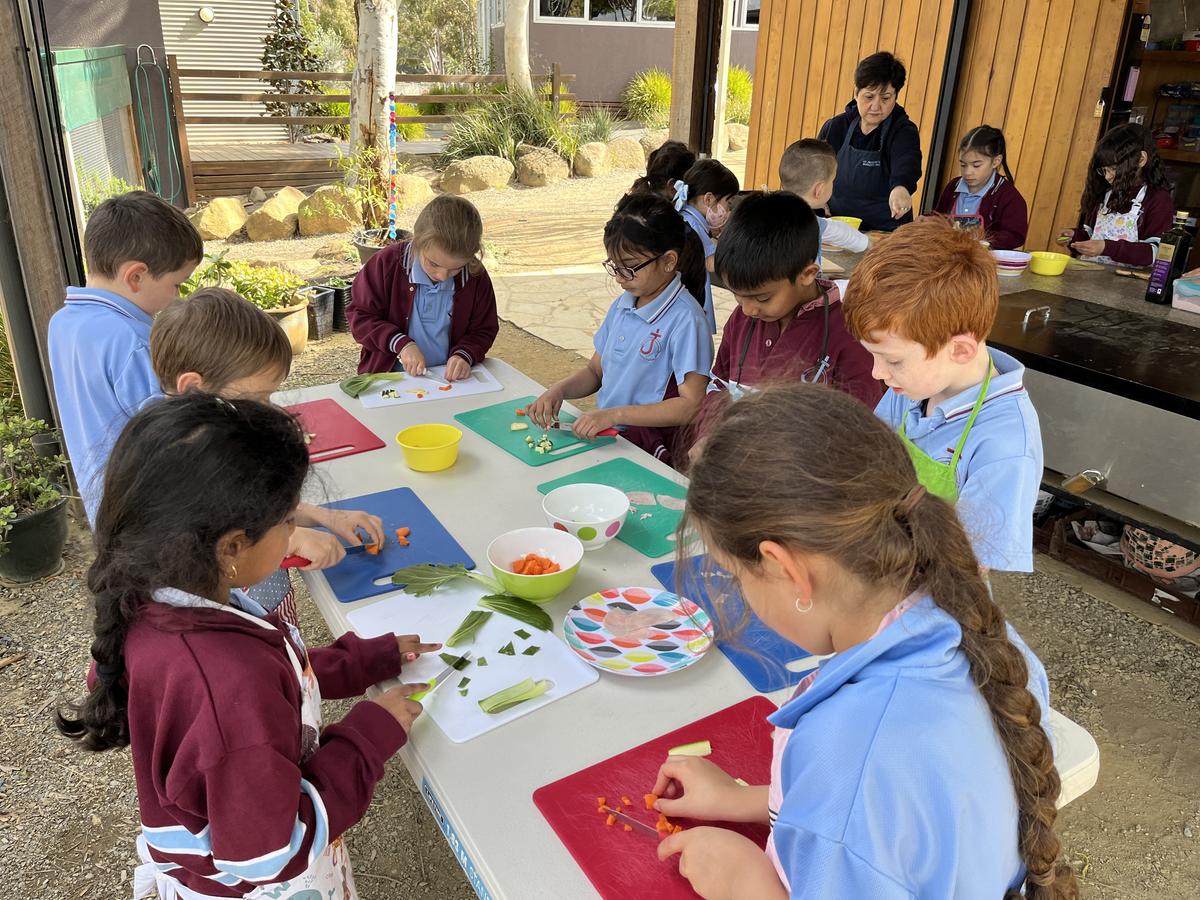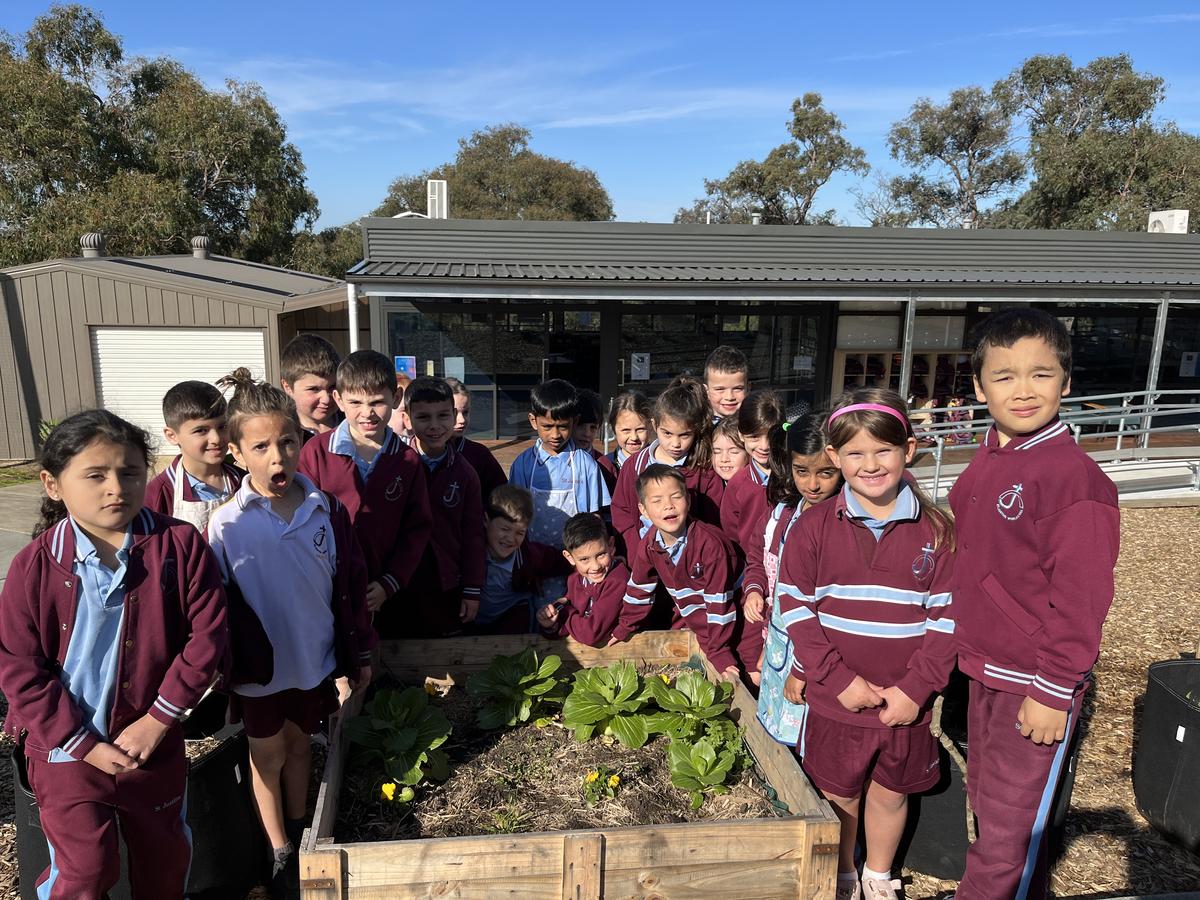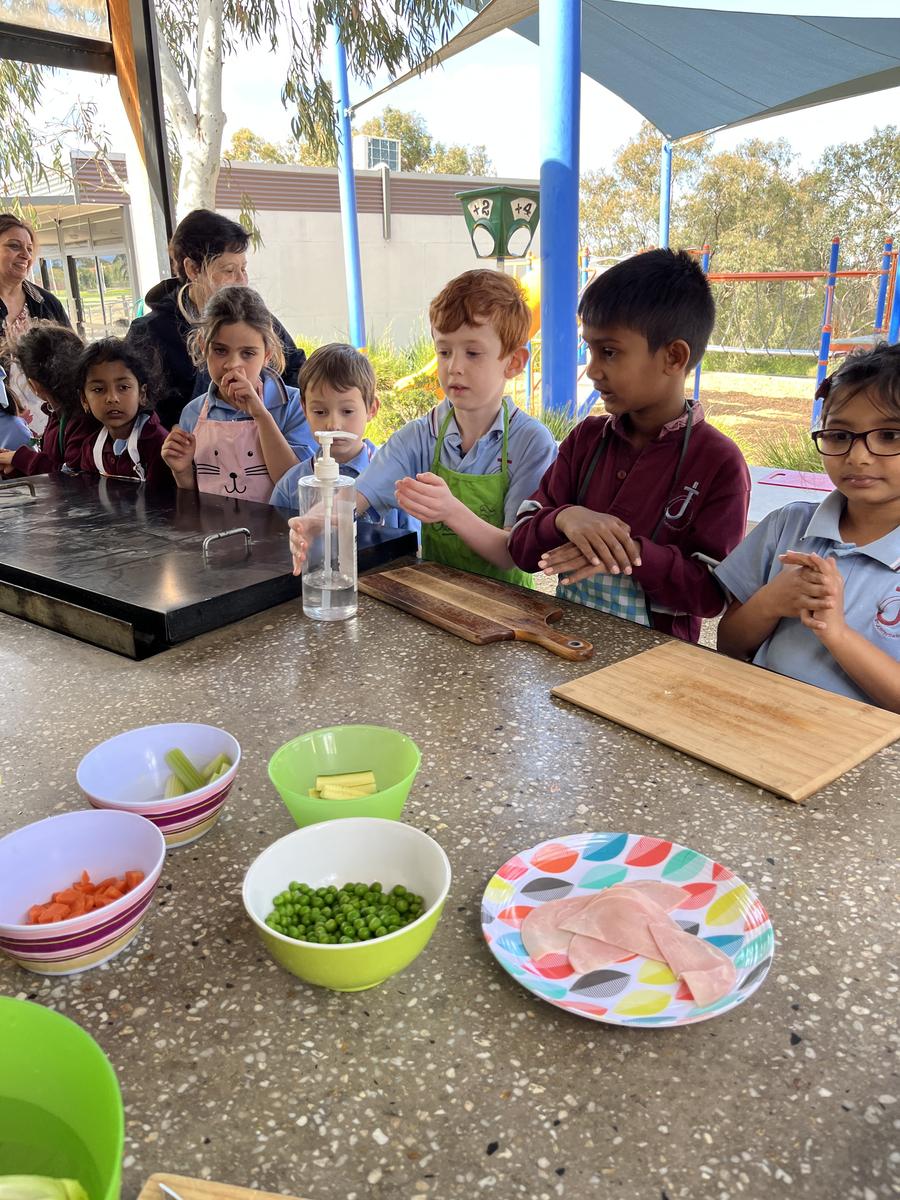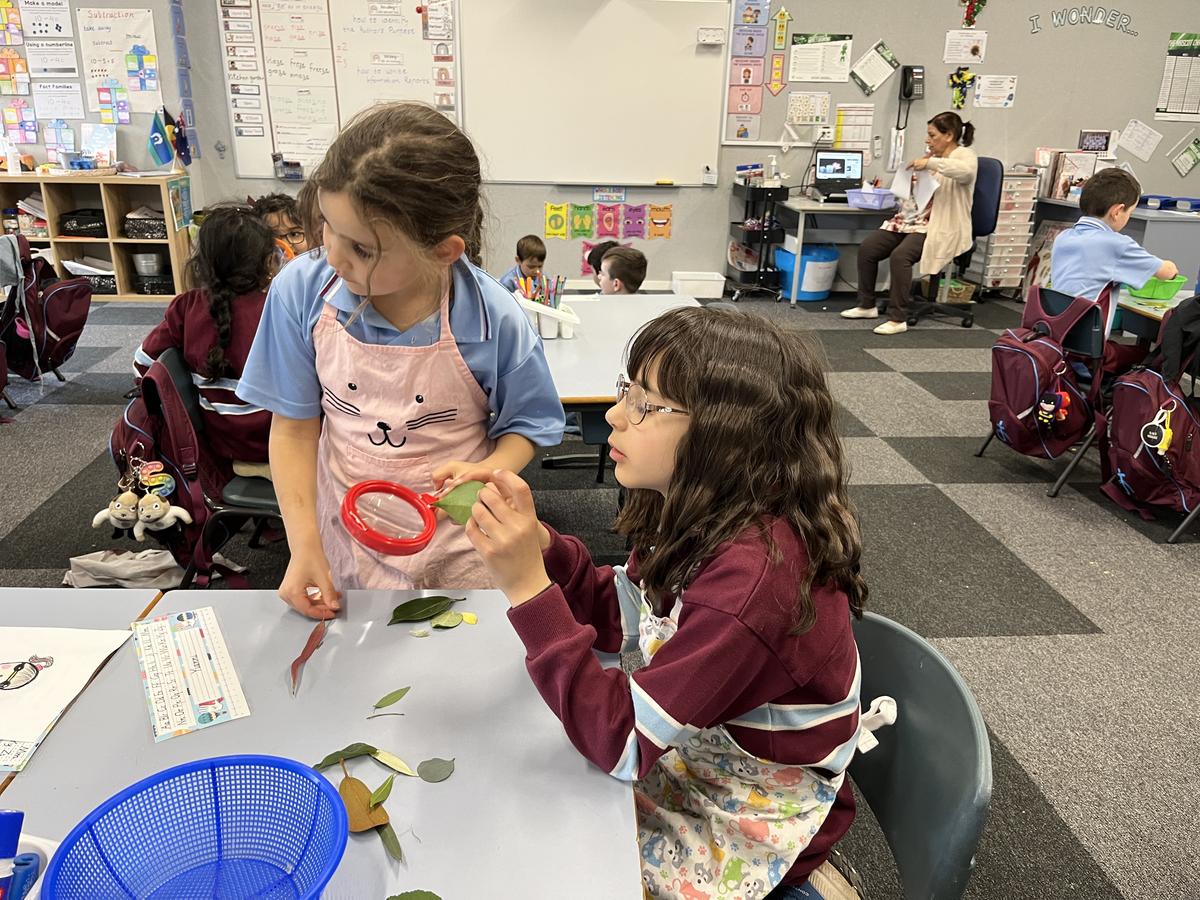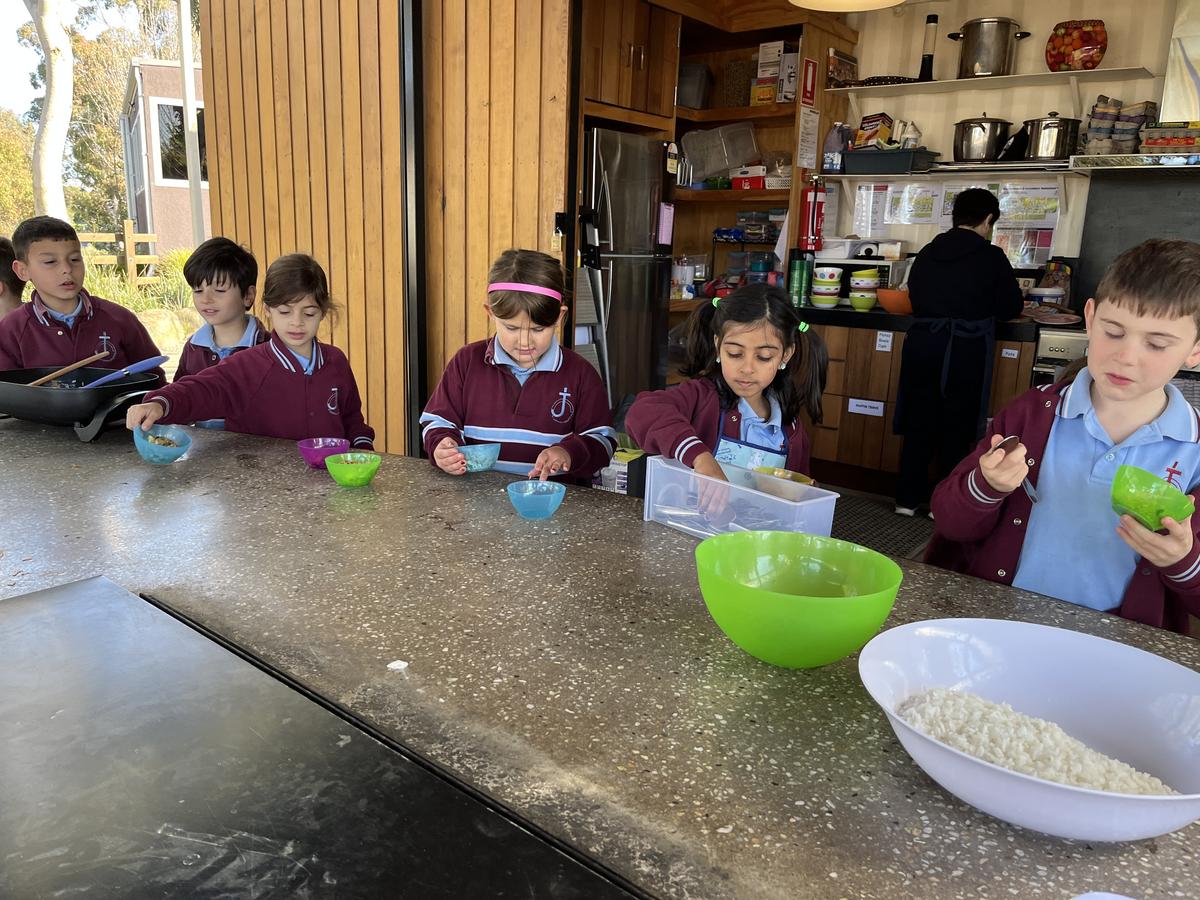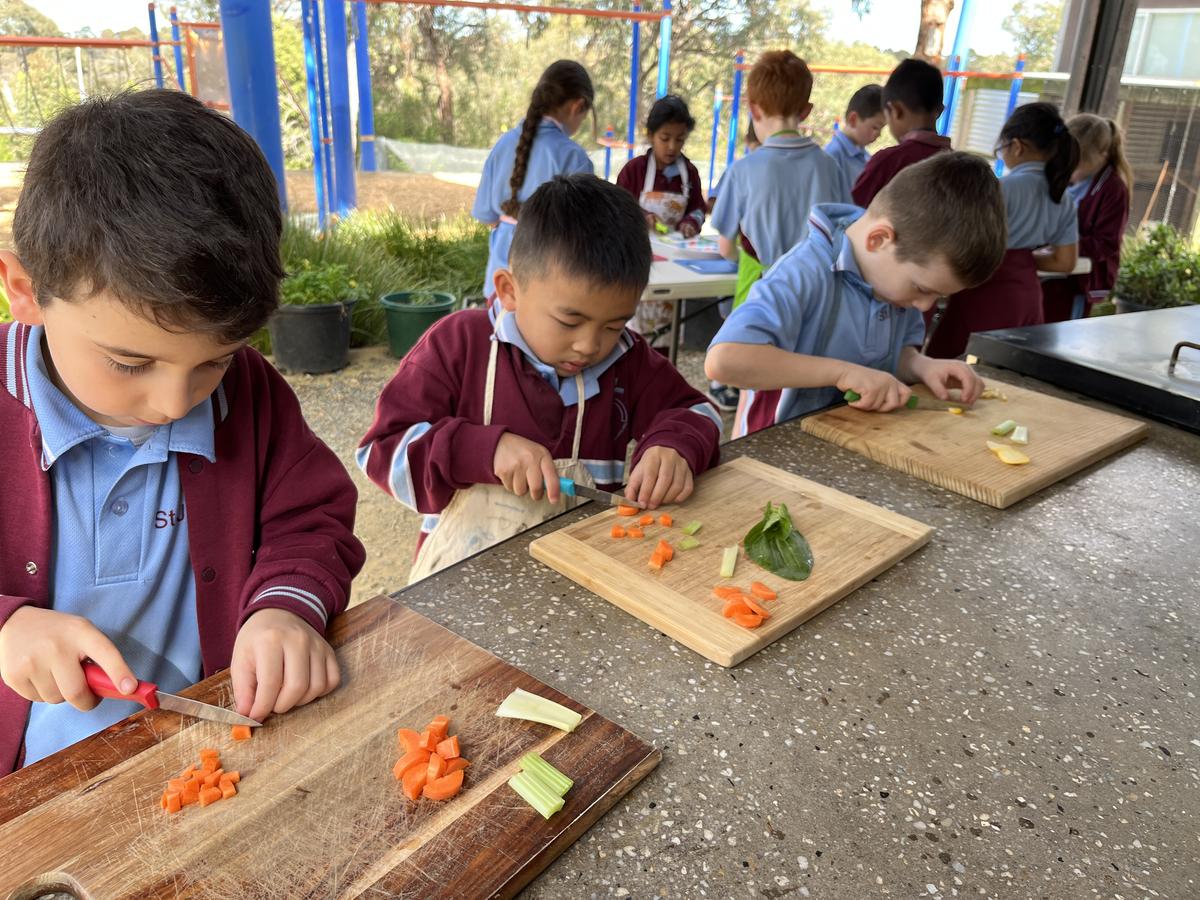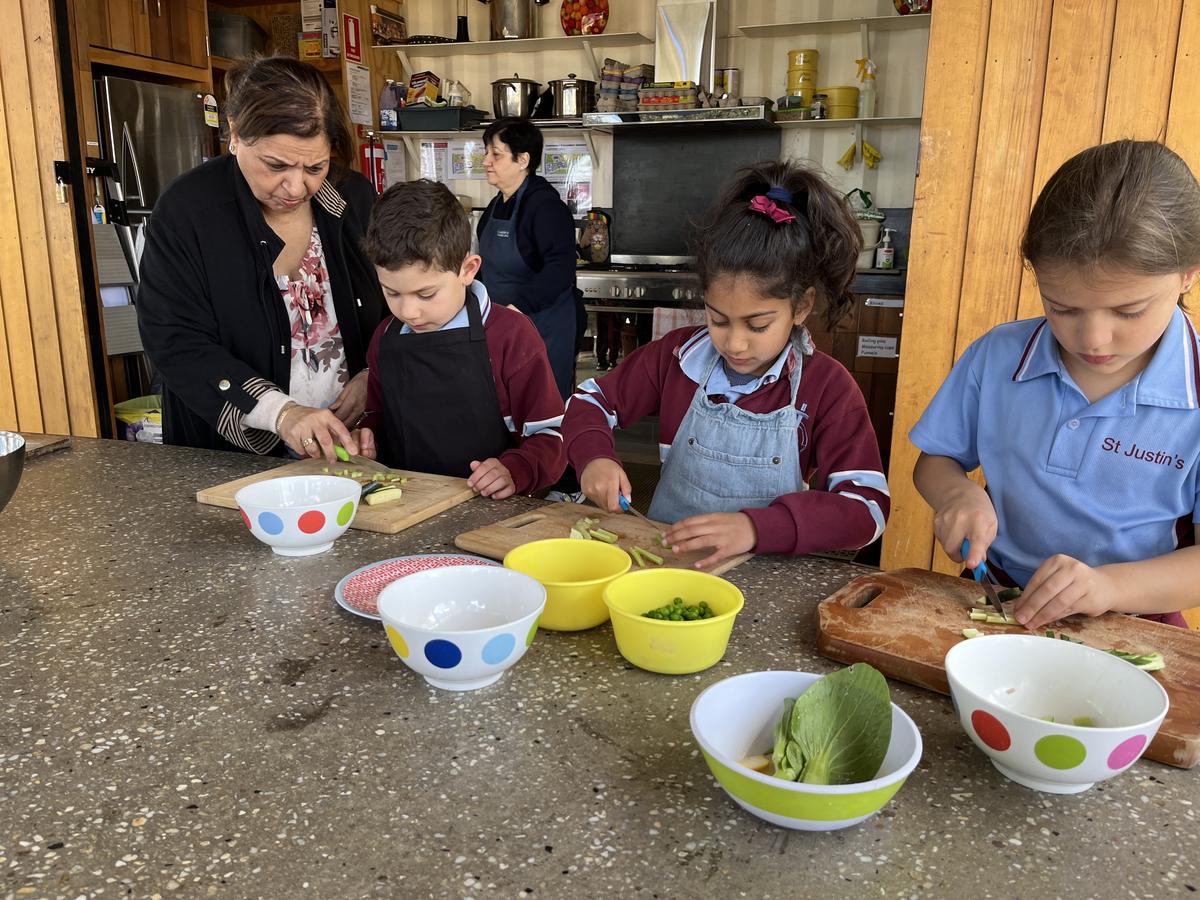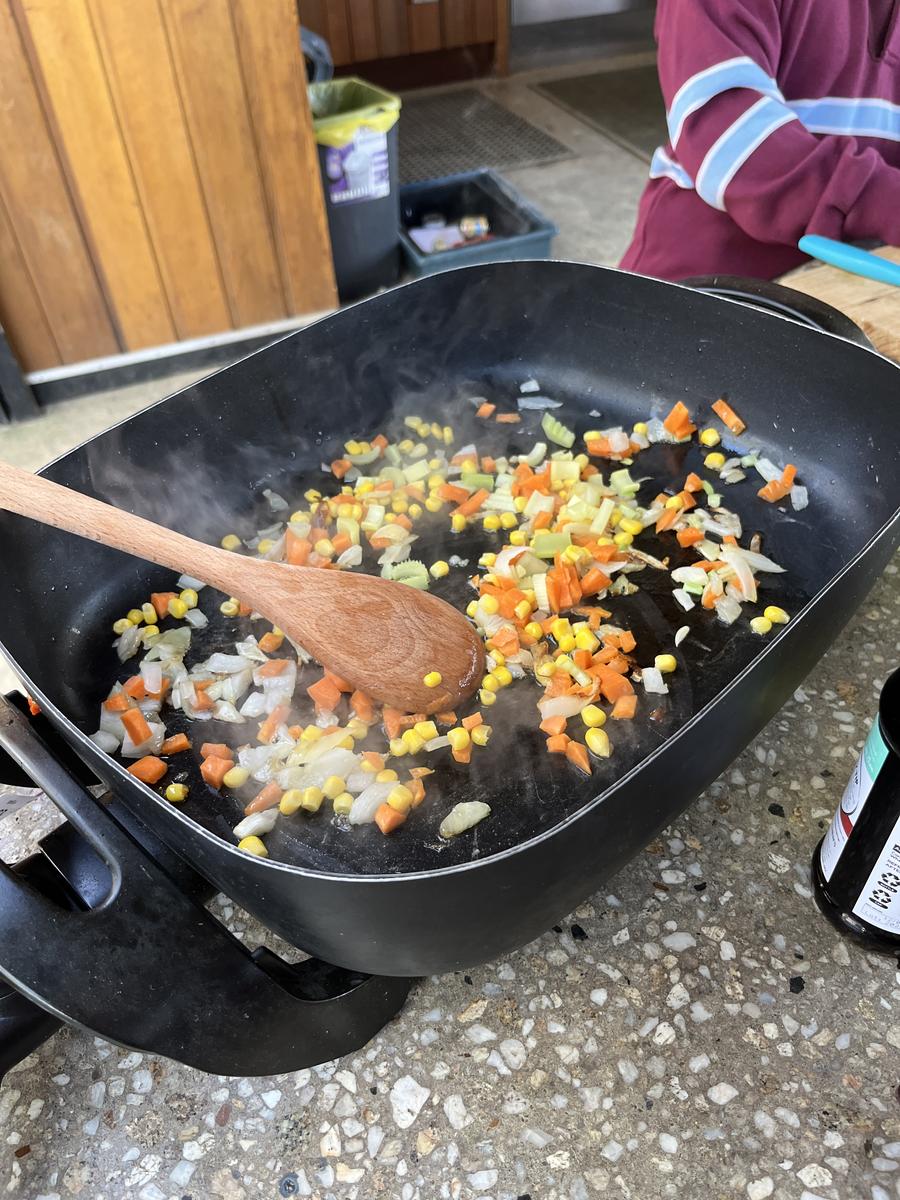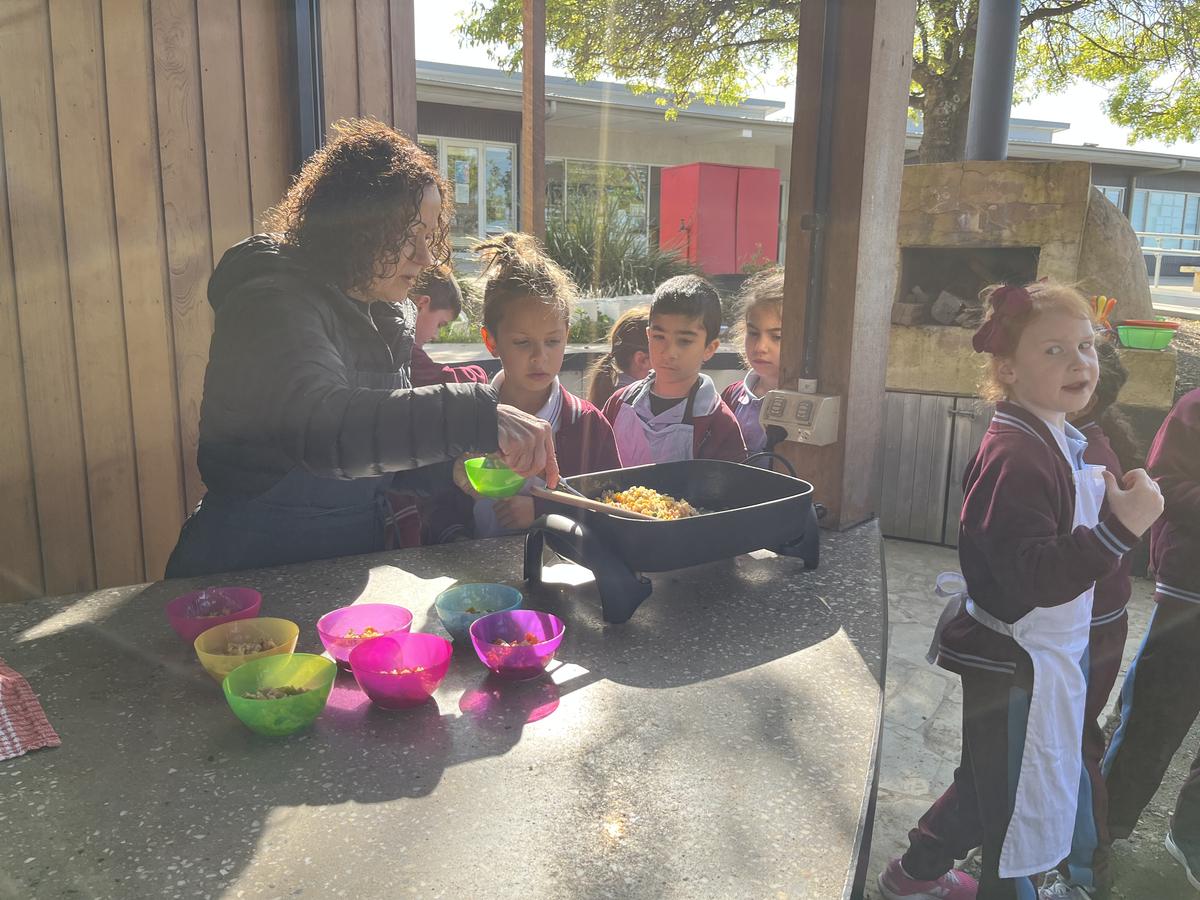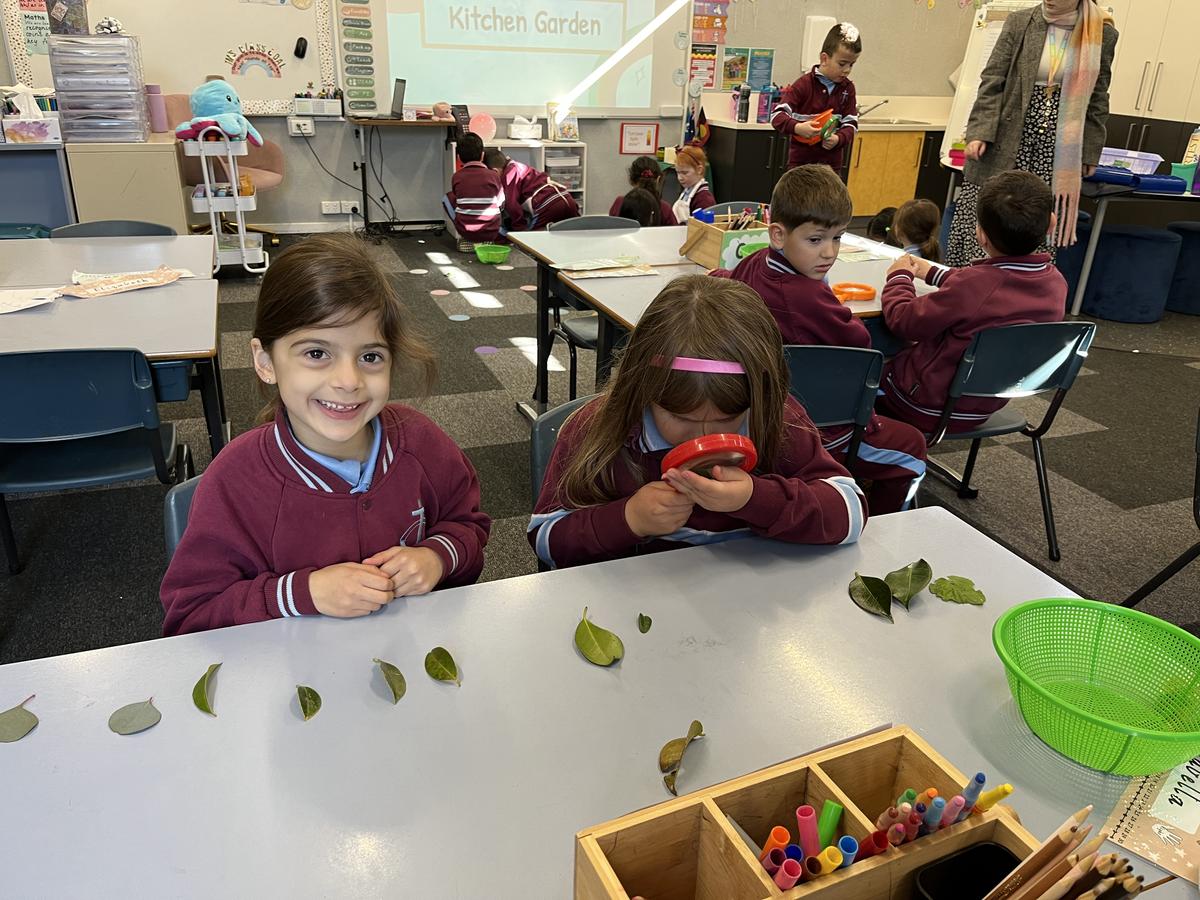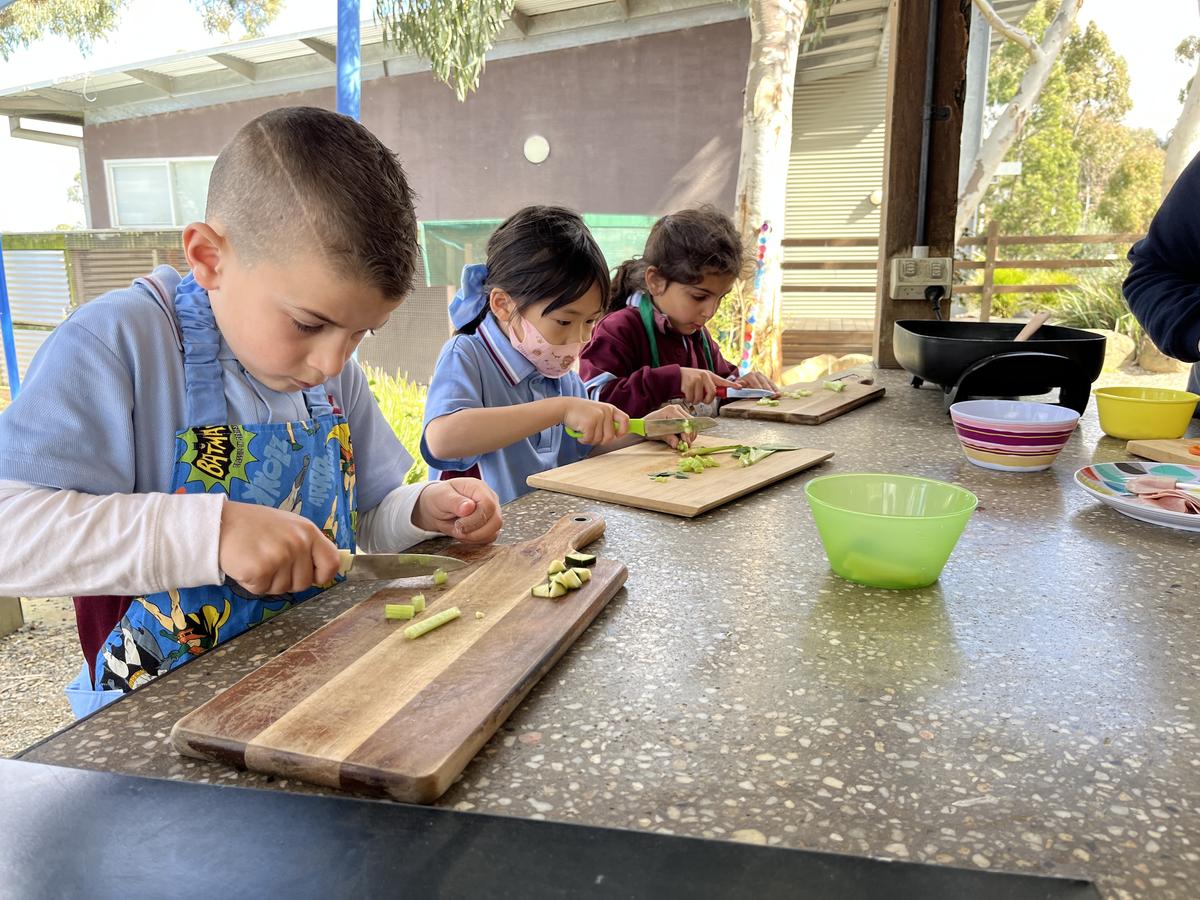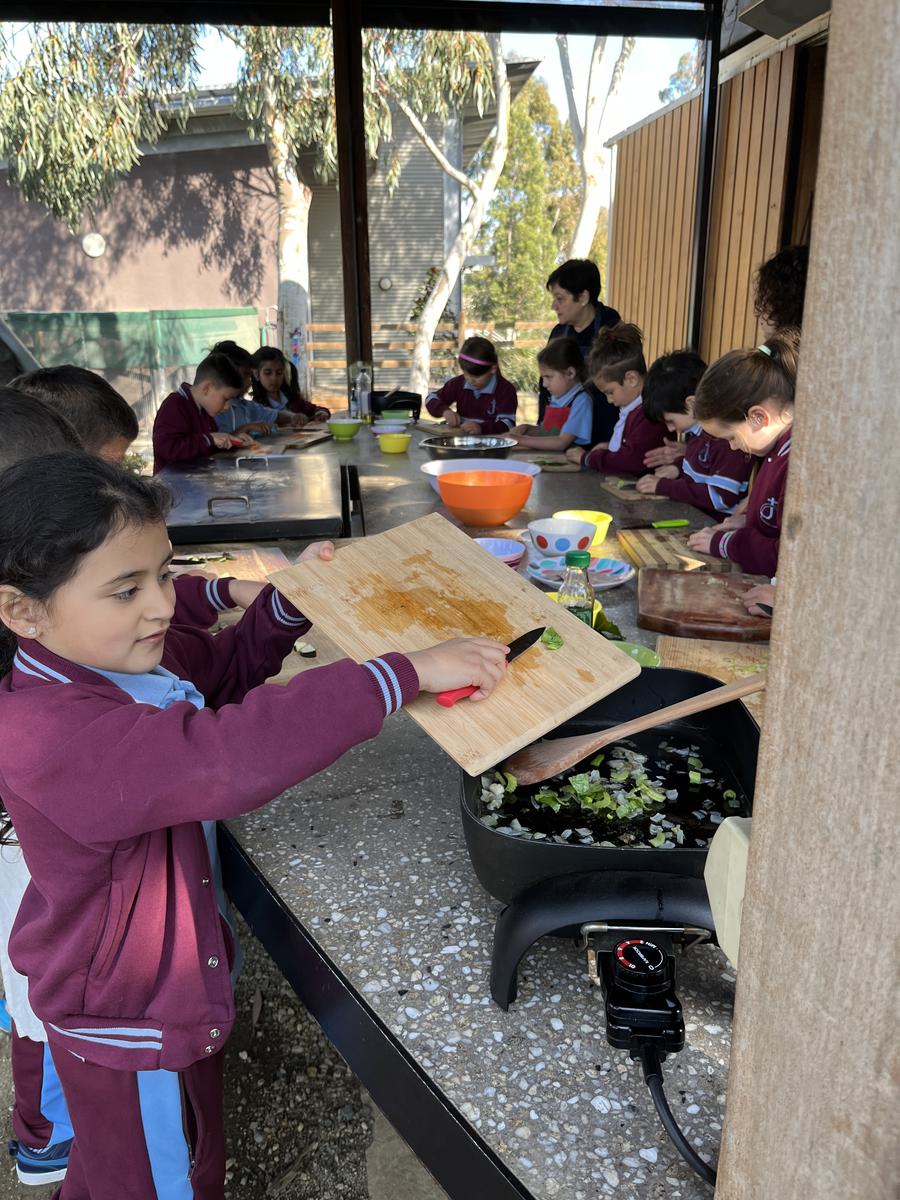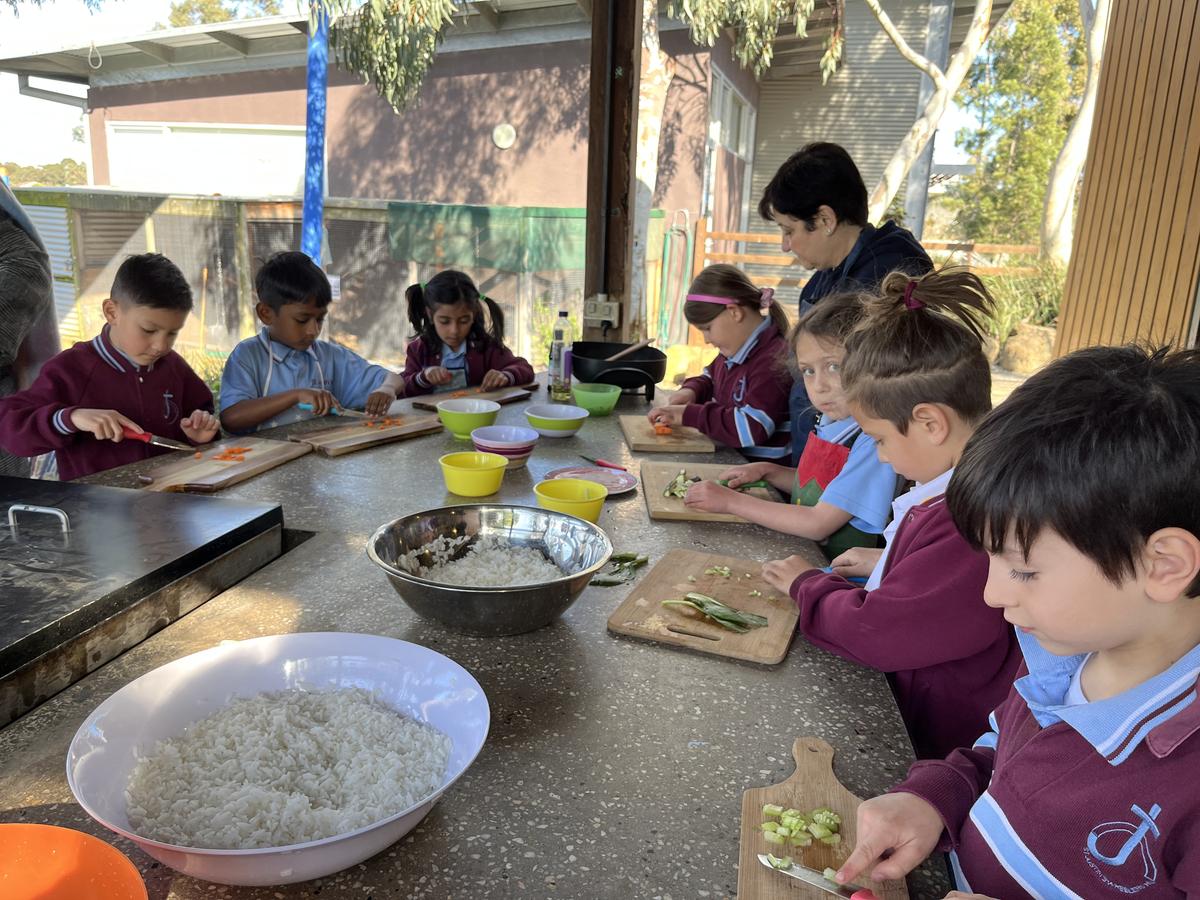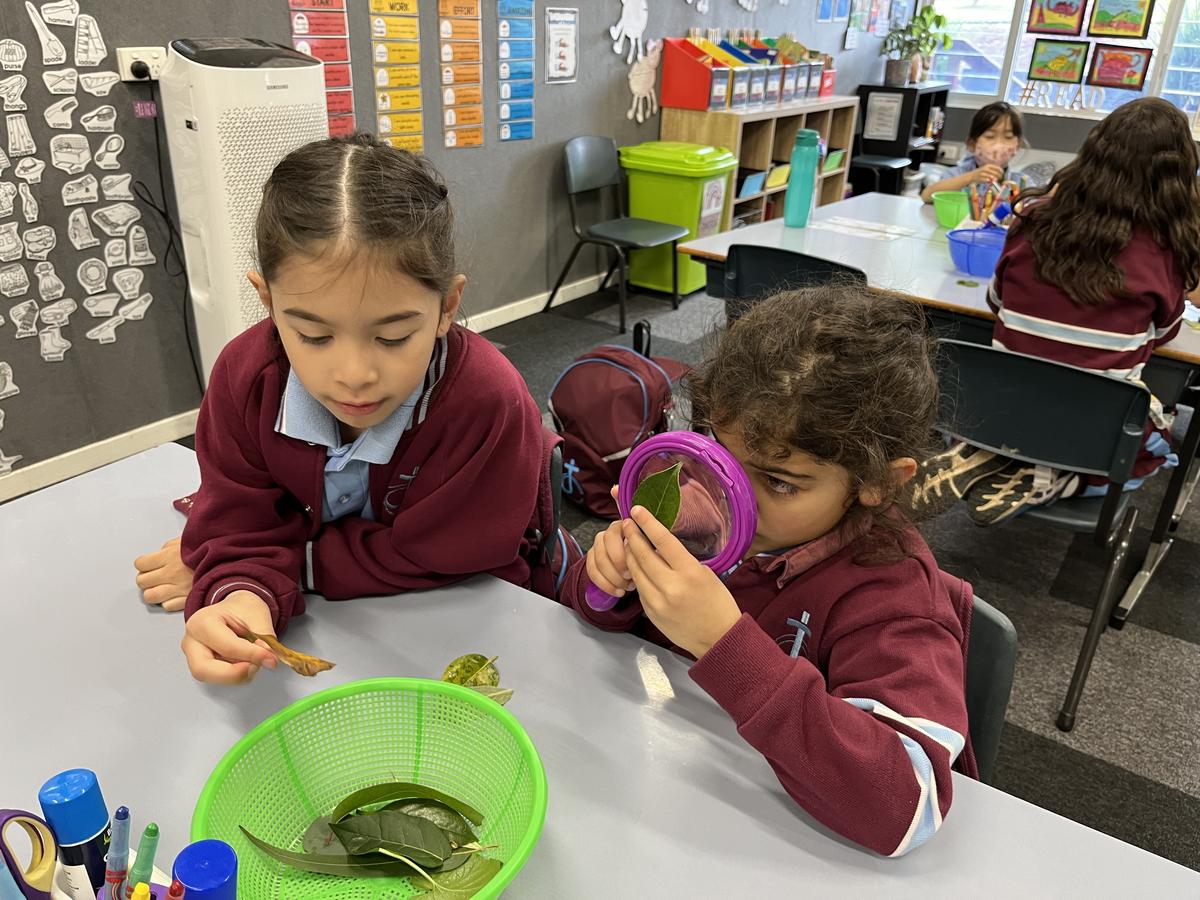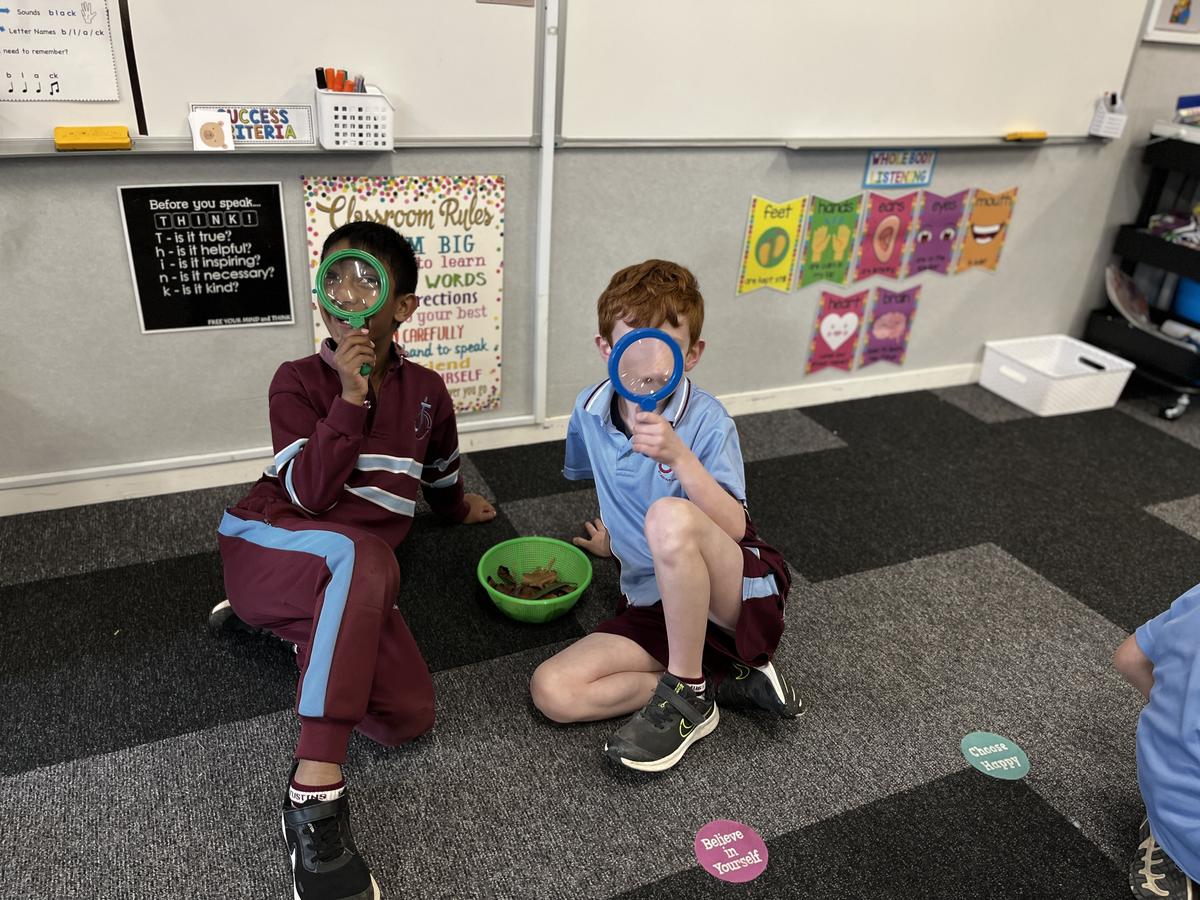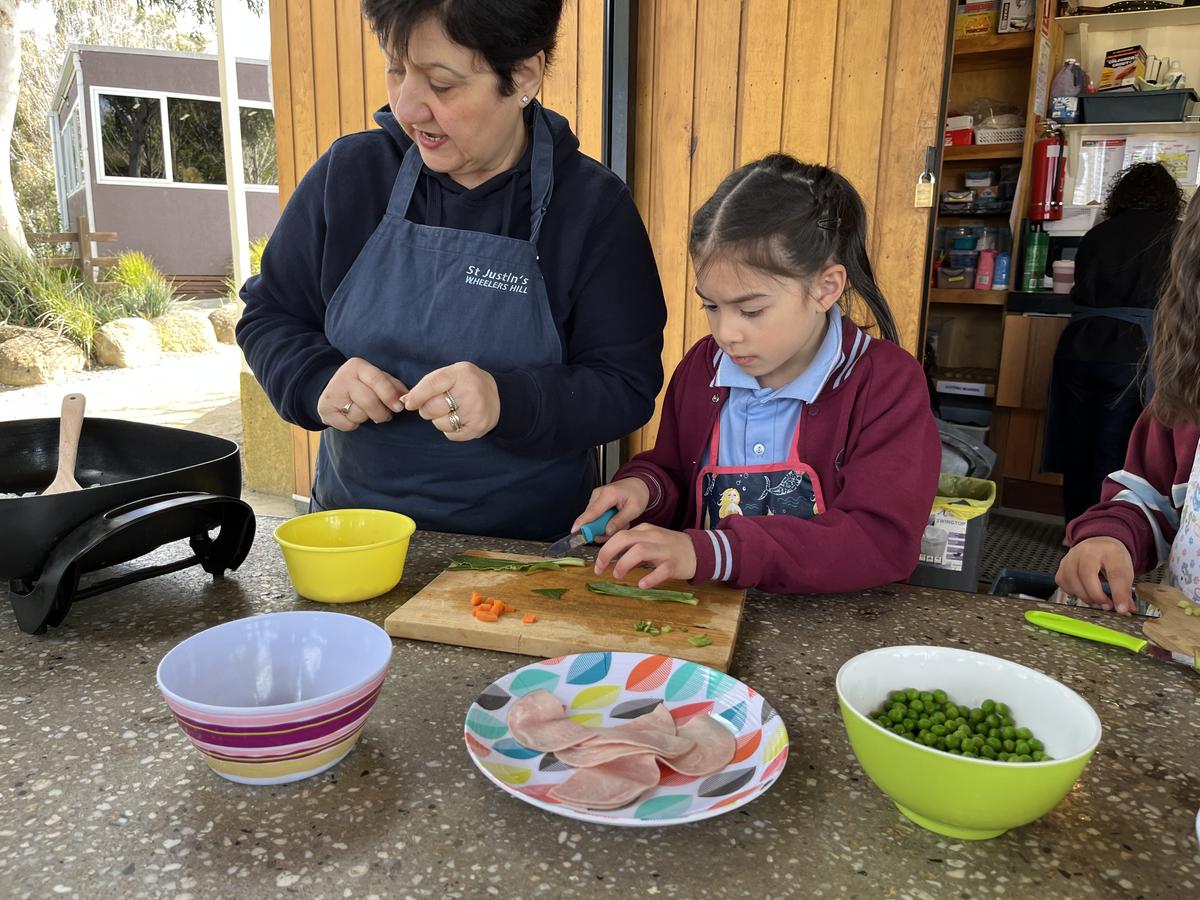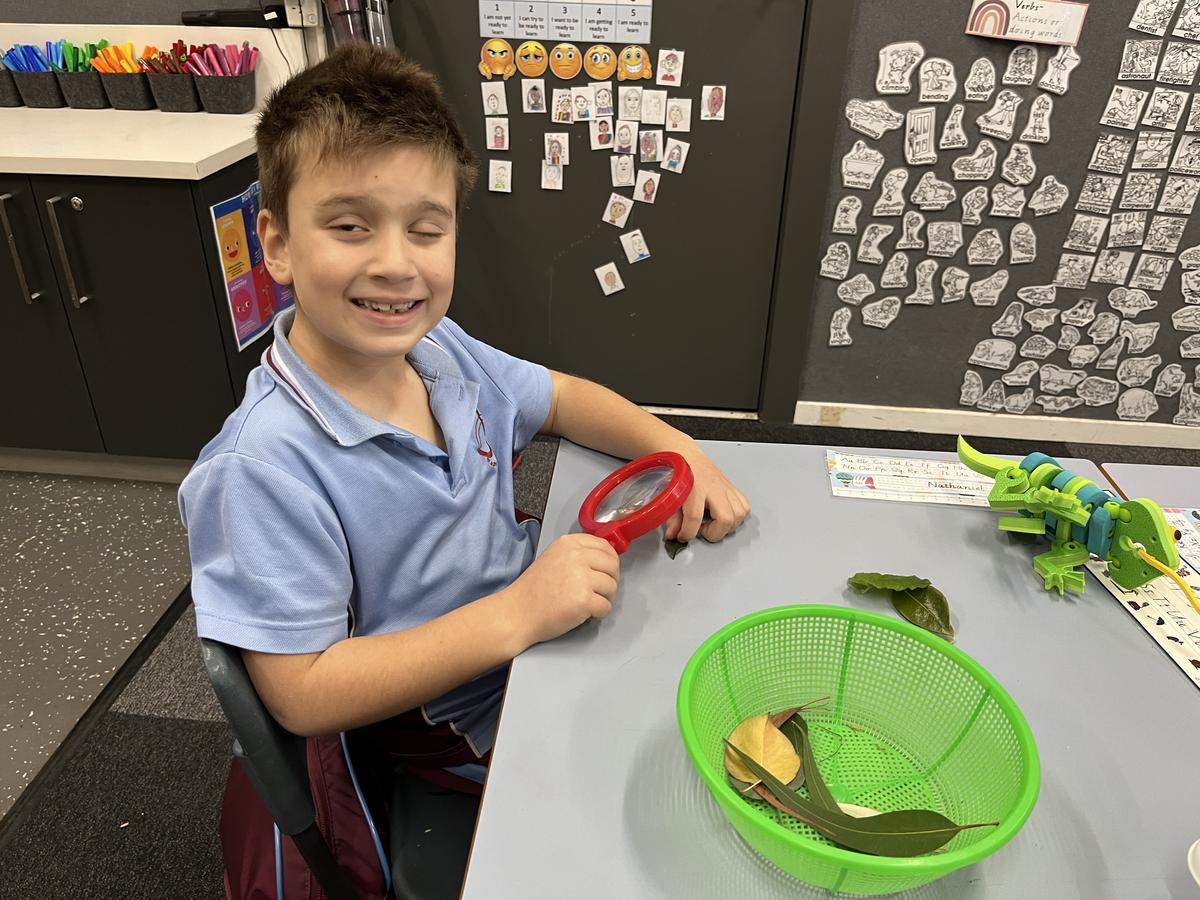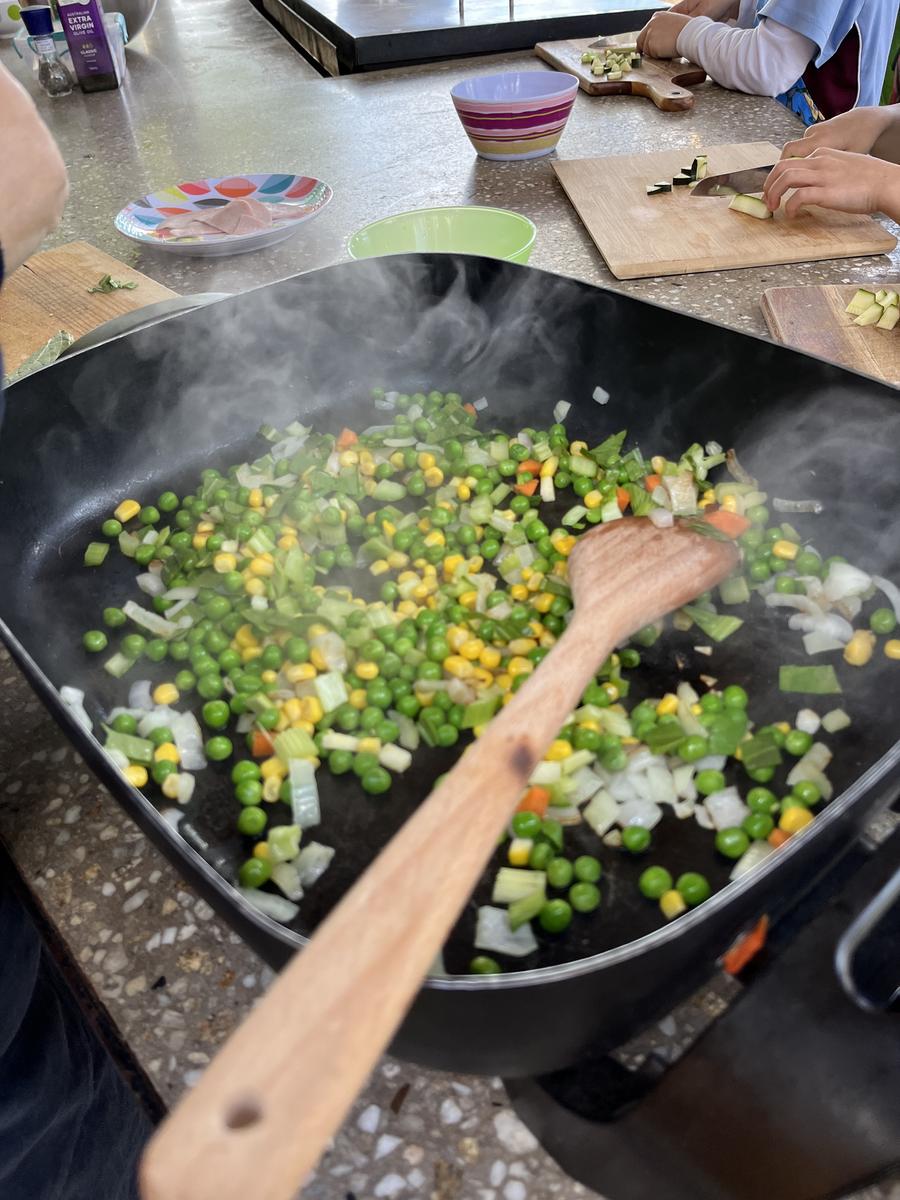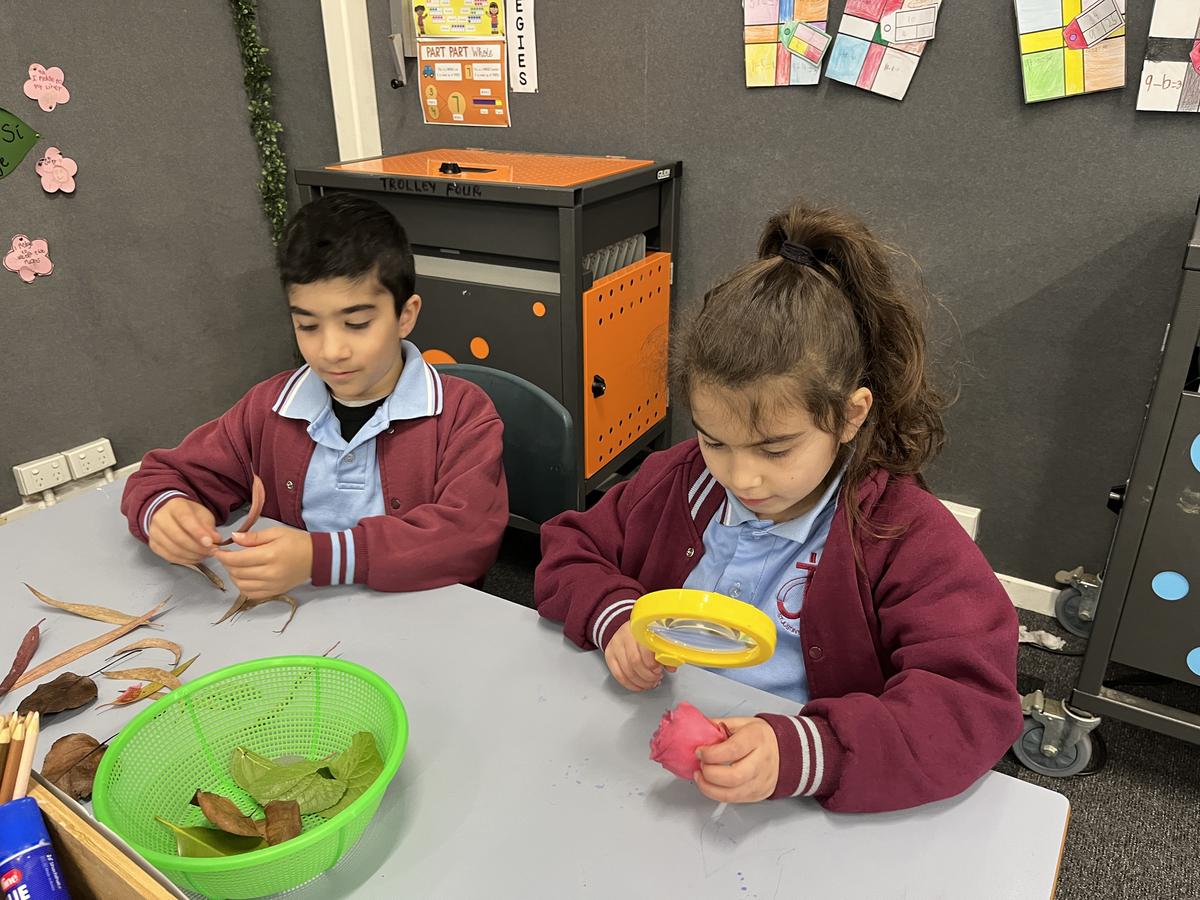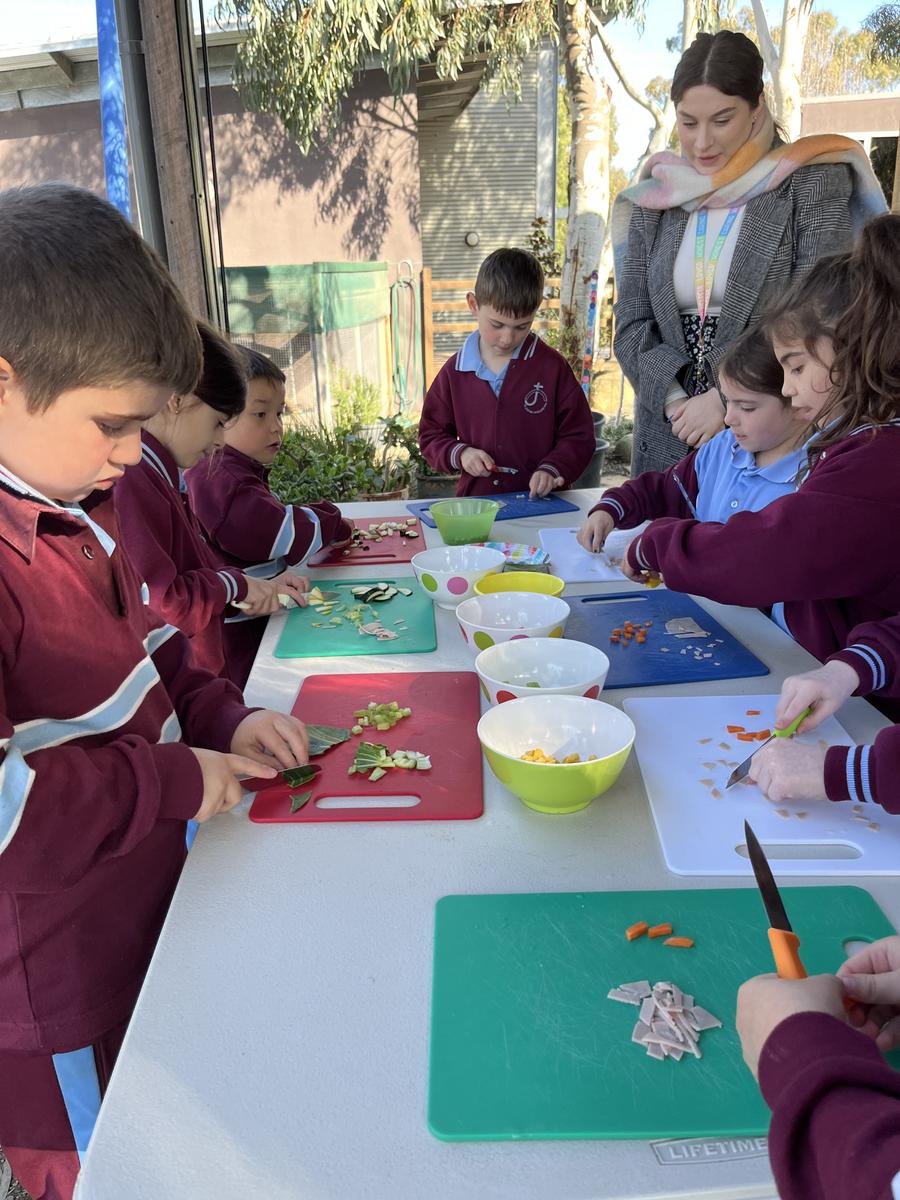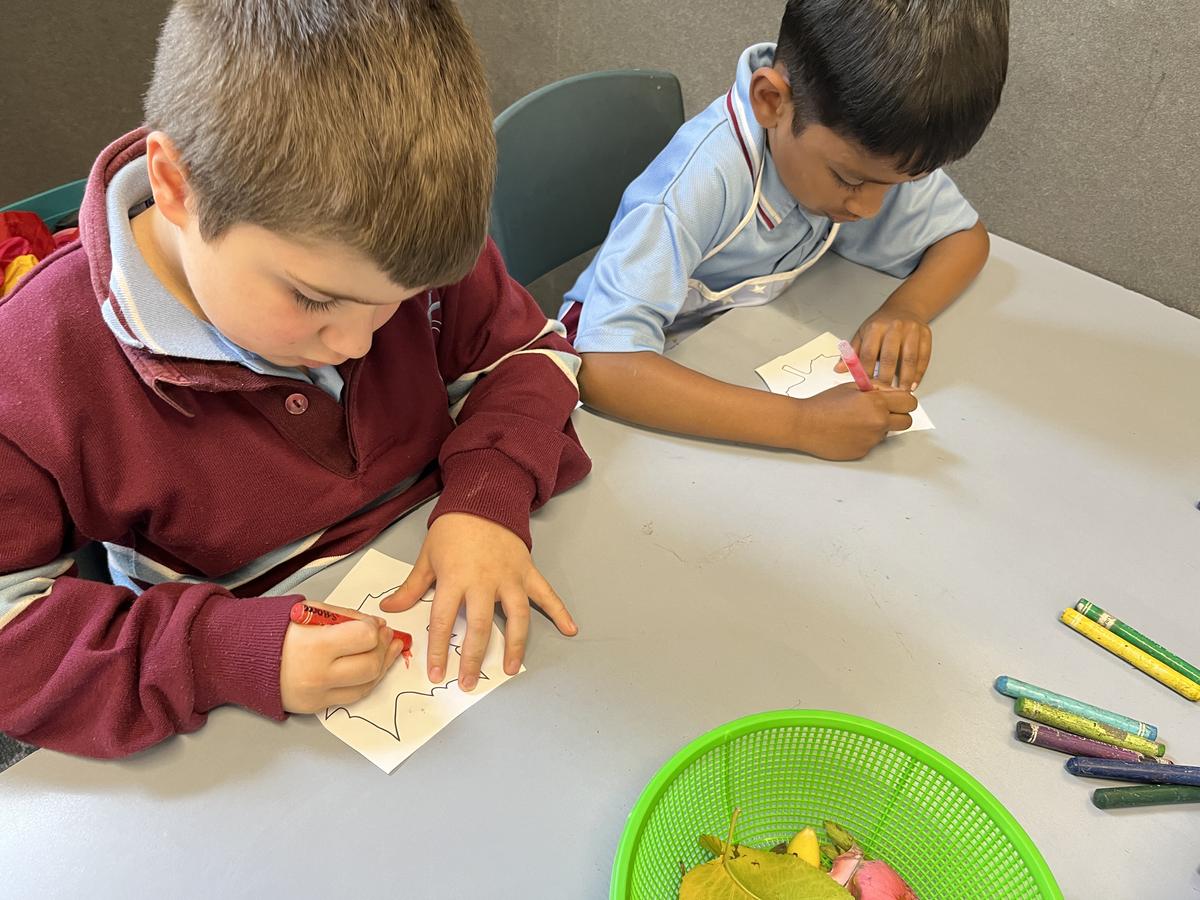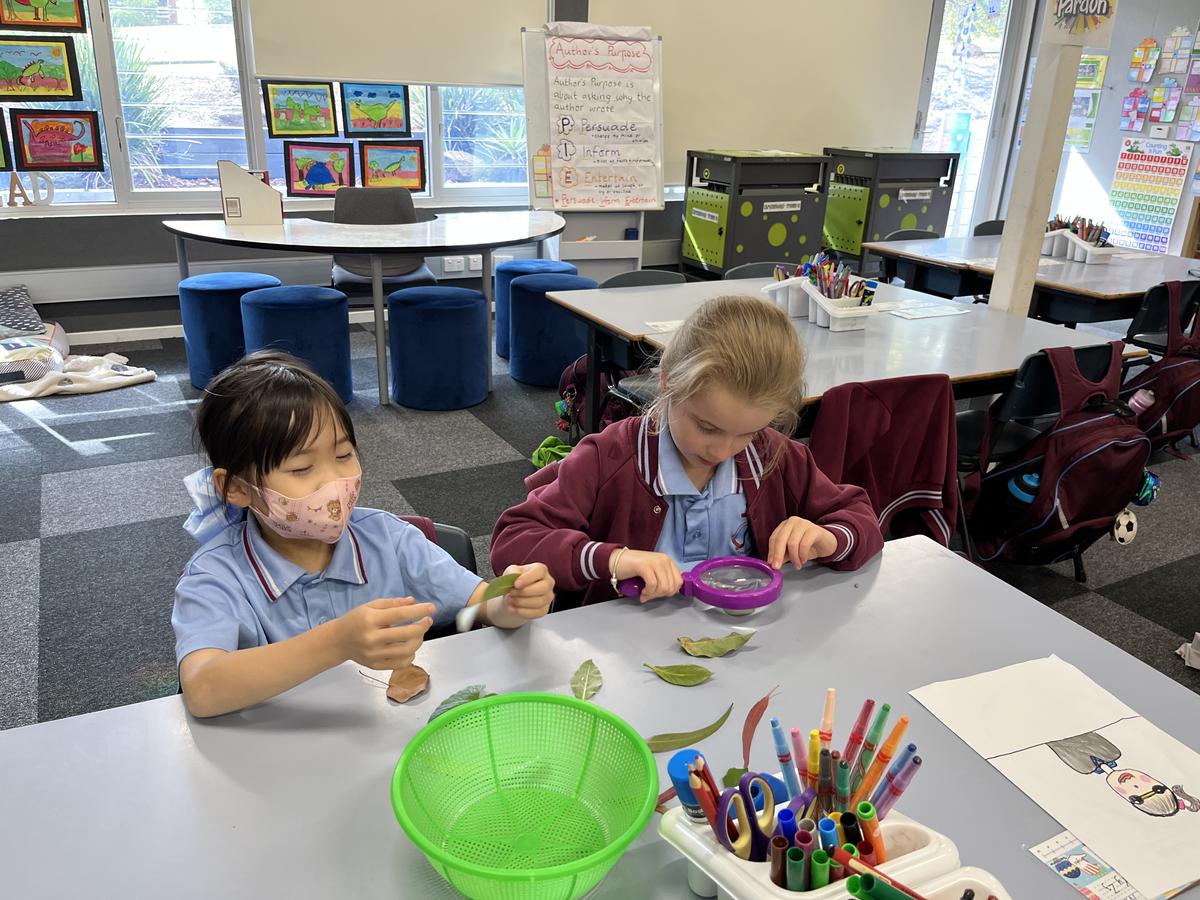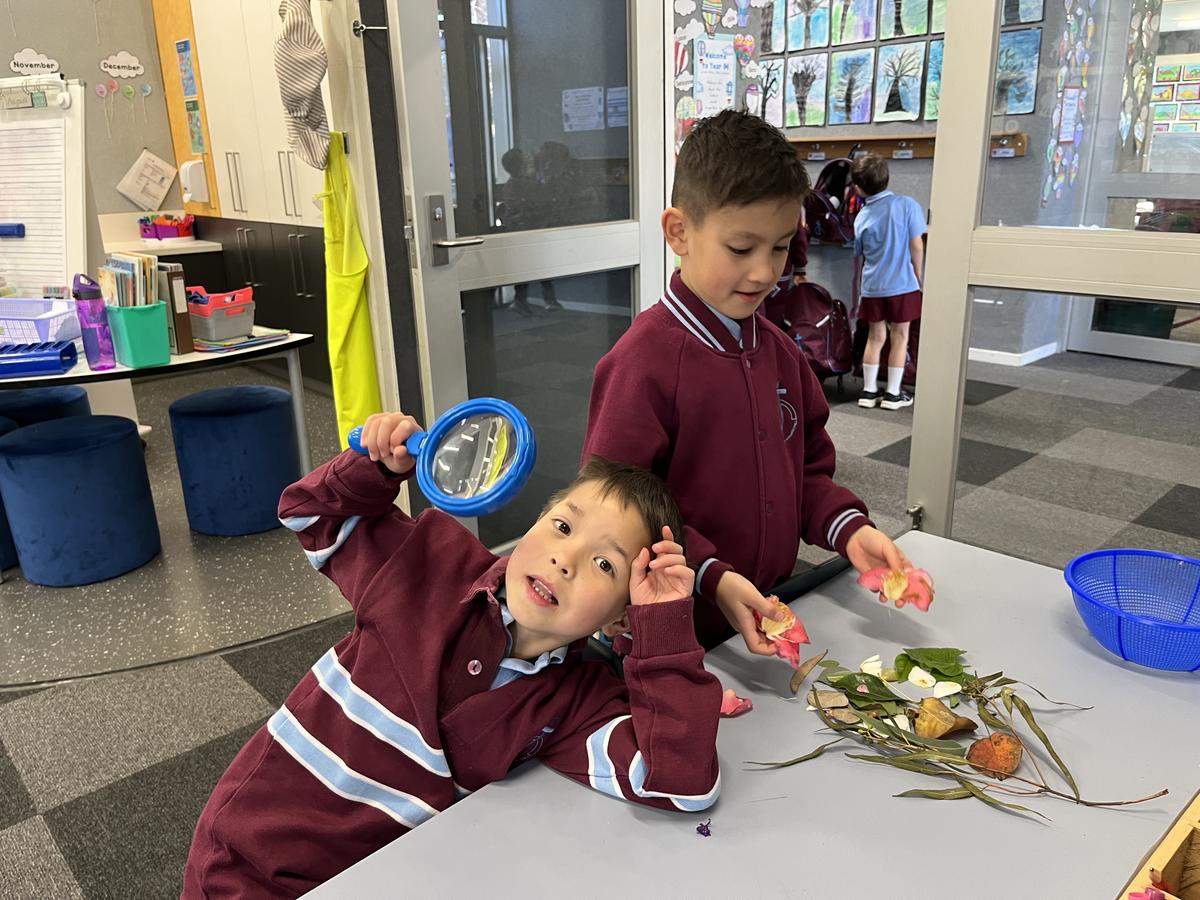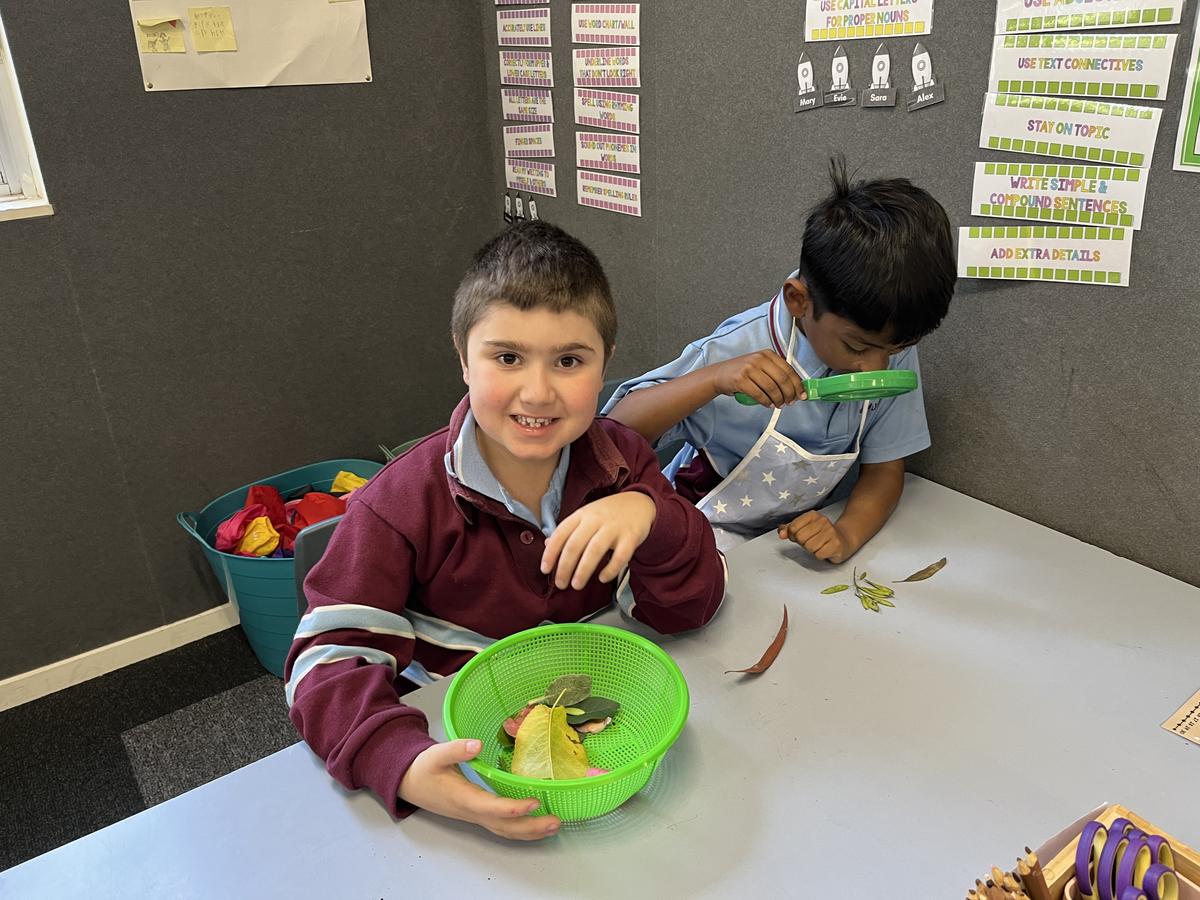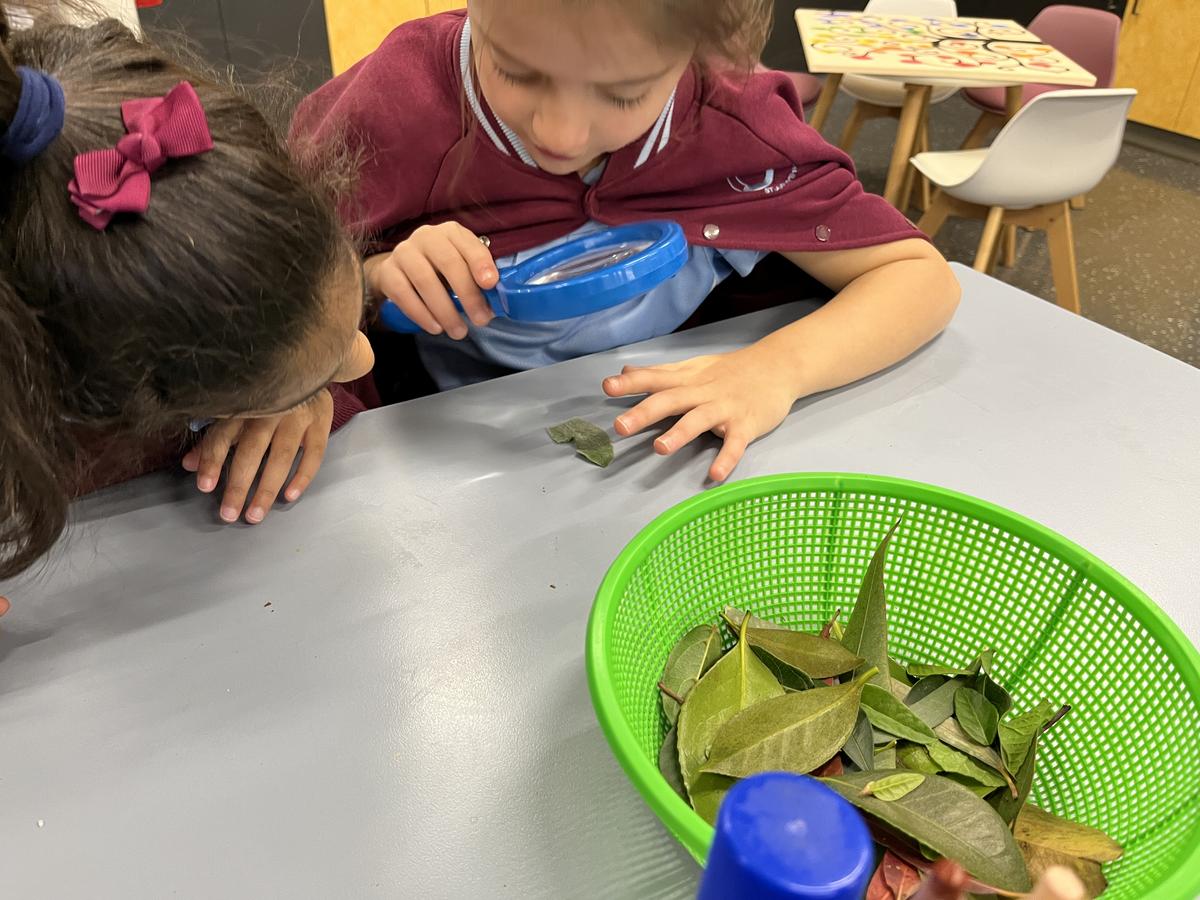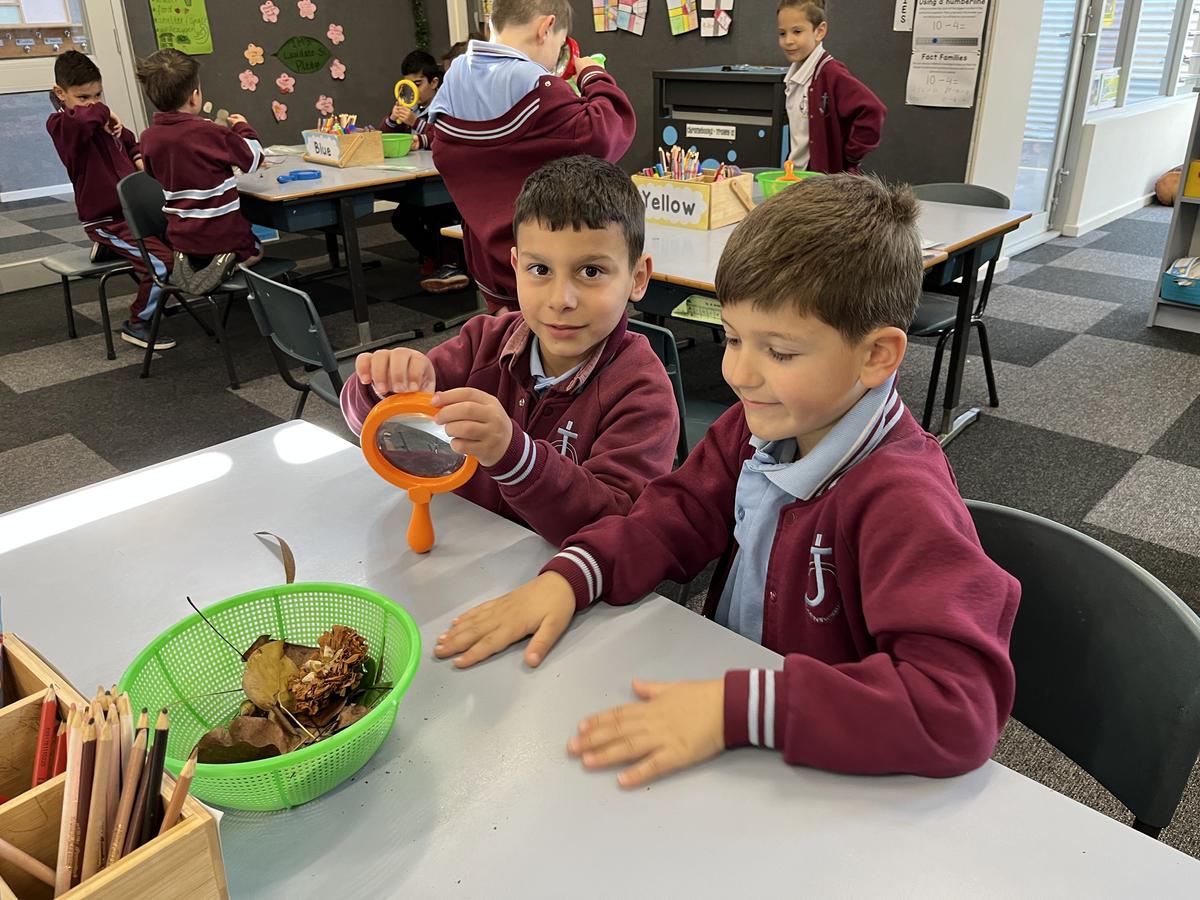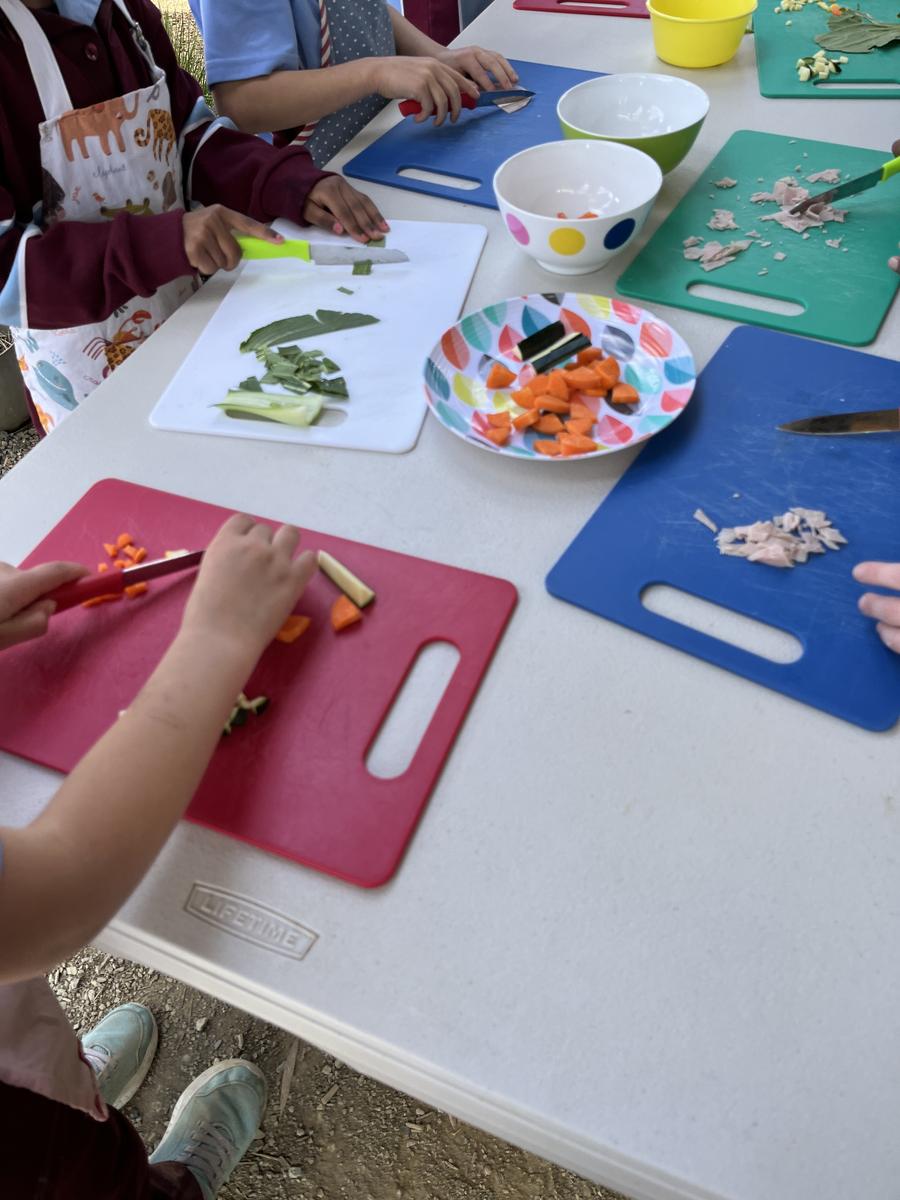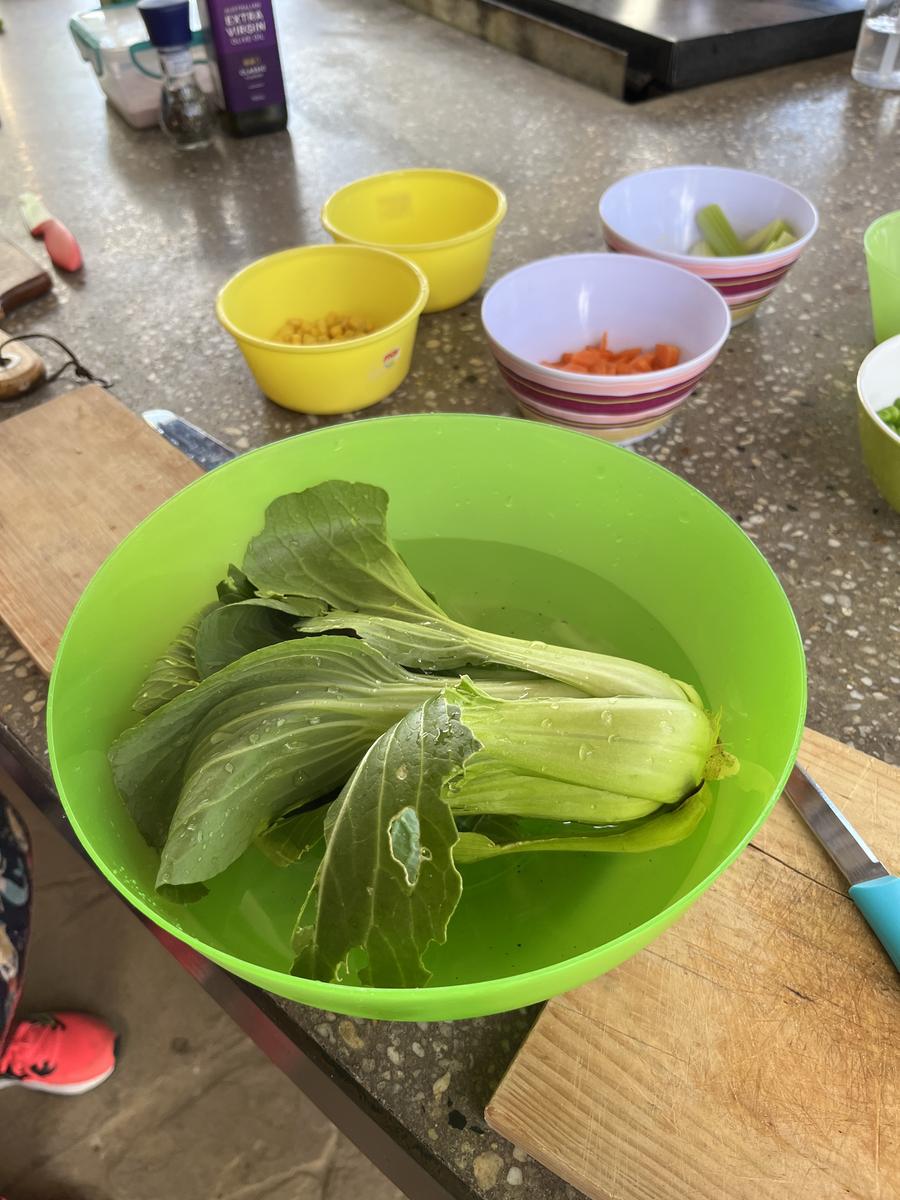Sustainability
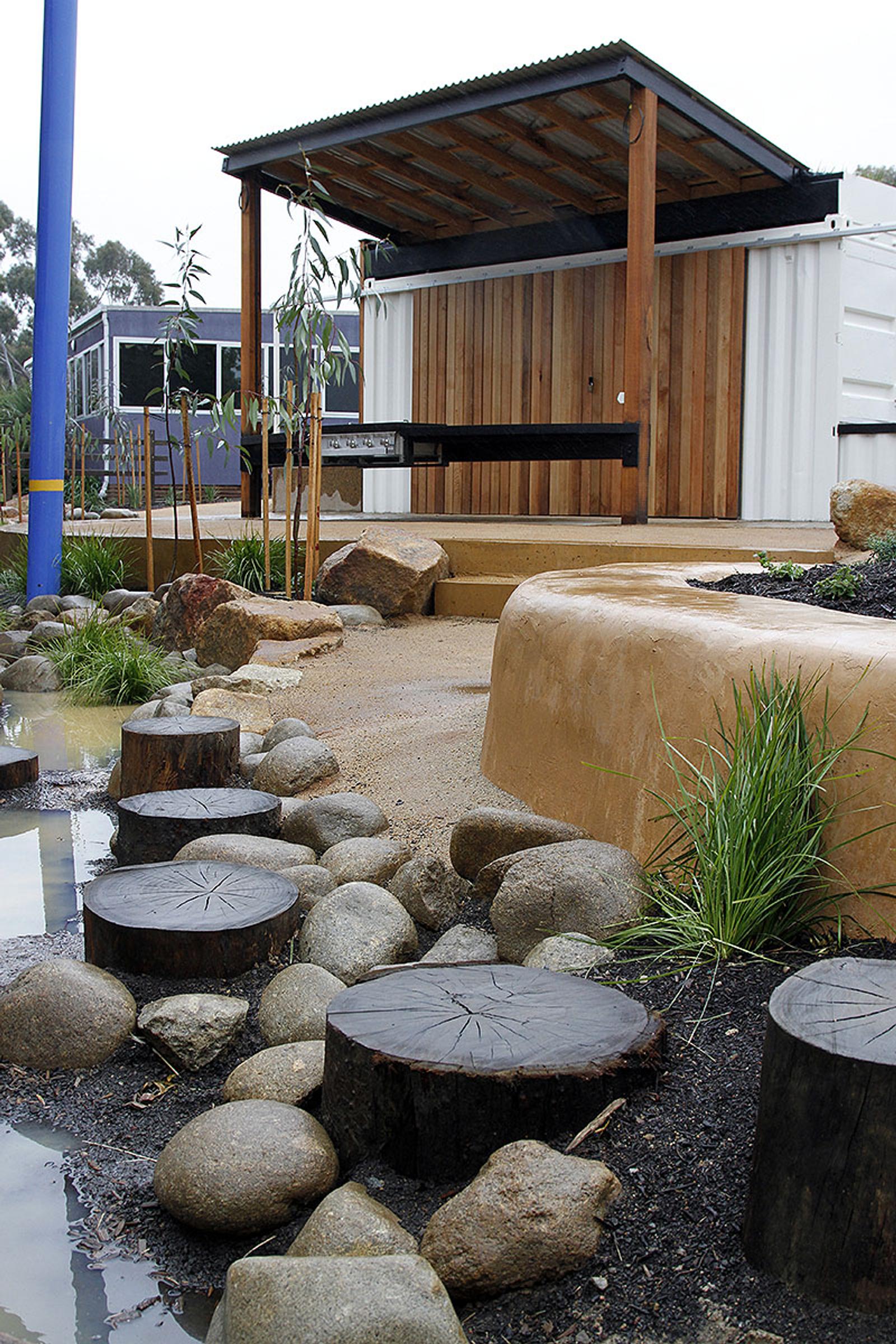
Year 4 Kitchen Garden
Year 4PD spent the afternoon outdoors dodging the rain! We made delicious broccoli (or should we say broccauli) bites, as we used cauliflower too. Students were led to understand how heathier, more economical and more environmentally friendly produce is when it is sourced locally and in season. We modified the bites to be gluten free replacing the bread crumbs with gluten free flour. We had intended to make them lactose free, however the cheese was added to the mix and we couldn't take it out! A huge thank you to Mrs Pitt who stood in for Mrs Cedro and was a superstar in the kitchen. Outdoors we made plastic plant protectors to place around the newly planted native shrubs. This involved using mallets and hammers, stakes and reusing plastic shopping bags. The students hammered in three stakes to make a triangle around the plant, then fashioned the plastic bag to wrap around it, securing it with staples. The students did this in record time, safely and sensibly.
Year 1 Kitchen Garden
The year one students recommenced their Kitchen Garden sessions on Thursday making Fried Rice using bok choy sourced from our garden at school. The students harvested the boy choy and prepared it for cooking. The garden activity focused on leaves and how they are the pathway for nutrients and water to feed the plant. They observed different sized, shaped and textured leaves, recording these observations by rubbing them with crayon onto paper. What an absolute delight working in the outdoor kitchen it is with these year one students!
National Biodiversity Month
Biodiversity Month is celebrated every September promoting the importance of:
- connecting with nature and
- caring for nature in all its diversity – its biodiversity!
Nature is valuable and we need nature. It provides the building blocks for our survival, such as food, clean air, water, and shelter. Nature also supports our health and wellbeing, and our economy. And while we need nature, nature also needs us.
Biodiversity is the variety of all life forms on earth – the different plants, animals and micro-organisms, and the ecosystems that are their homes.
Many of Australia's plants, animals and places are unique and are not found anywhere else in the world.

